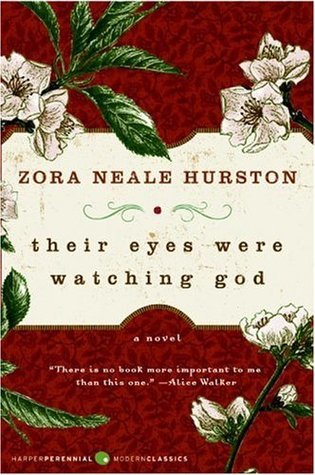Nava Atlas's Blog, page 6
December 24, 2024
Ouida (Louise de la Ramée), English Victorian Novelist
Louise de la Ramée, (known by her pen name of Ouida; January 1, 1839 – January 25, 1908) was an English novelist of French extraction. Born in Bury St. Edmunds, England, her nom de plume was supposedly suggested by a young sister’s efforts to pronounce “Louise.”
The best-known of her many works are A Dog of Flanders, a children’s book that has been adapted to film numerous times, and Under the Flag. She wrote more than forty novels, plus many short stories and children’s books. She also contributed numerous articles and essays to magazines and journals.
Her novels dealt with all phases of European society, some of her themes being treated with cleverness and skill, often with cynical railing at the weaknesses of her characters.
Her early stories were extravagantly romantic, but she shed her passionate exuberance and became a stronger writer, though inclined to the reckless and tragic. For the last thirty years of her life she made her home in Italy, where scenes in many of her novels were set. (adapted from The New Student’s Reference Work, Chicago: F.E. Compton and Co., 1914)
The following has been adapted from De la Ramée, Marie Louise,” in Dictionary of National Biography, 1912 supplement, London: Smith, Elder, & Co. (1912) in 3 vols.
Ouida (1839 – 1908), born Marie Louise de la Ramée in Bury St. Edmunds, was the daughter of Louis Ramé and Susan Sutton. She owed her education to her father, a teacher of French whose intellectual power was exceptional. At an early age, she expanded her surname of Ramé into de la Ramée.
Though not a lot is known about her early life, a girlhood diary from April 1850 to May 1853 showcases her precocity, love of reading, and eagerness to learn. She visited Boulogne with her parents in 1850, and accompanied them to London in 1851 to see the Great Exhibition.
Slightly built, fair, with an oval face, she had large dark blue eyes and golden brown hair. A portrait in red chalk, drawn in September 1904 by Visconde Giorgio de Moraes Sarmento, was presented by the artist to the National Portrait Gallery, London, in 1908. He offered another drawing, also created in her declining years, to the Moyses Hall Museum, Bury St. Edmunds.
. . . . . . . . . . .
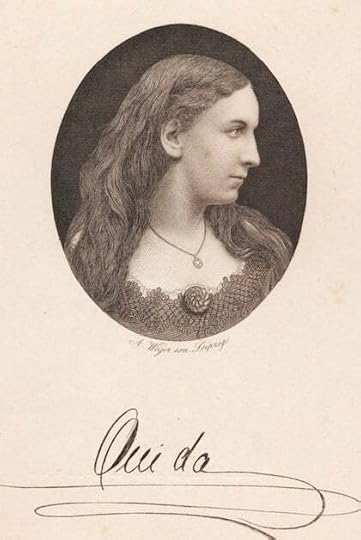
. . . . . . . . . . .
The beginnings of a literary career
Ouida began her literary career under Harrison Ainsworth’s auspices, publishing a short story titled “Dashwood’s Drag or, the Derby and What Came of It” (1859) in the New Monthly Magazine.
Ainsworth, convinced of her ability, accepted and published by the end of 1860 seventeen tales by her, none of which she reprinted, although they brought her into notice. Like her later novels they dealt with dubious phases of military and fashionable life.
Her first long novel, Granville de Vigne, appeared in the same magazine in 1863. Tinsley published it in three volumes, changing the title with her consent to Held in Bondage. On the title page, Miss de la Ramée first adopted the pseudonym of “Ouida,” by which she was ever after known as a writer.
Strathmore followed in 1865, and Idalia, written when she was sixteen, in 1867. Strathmore was parodied as Strapmore! a romance by “Weeder” in Punch by Sir Francis Burnand in 1878. Ouida’s vogue was assisted by Lord Strangford’s attack on her novels in the Pall Mall Gazette.
An exceptionally prolific writer in several genres
Ouida’s books were constantly reprinted in cheap editions, and some were translated into French, or Italian, or Hungarian.
Many of her later essays in the Fortnightly Review, the Nineteenth Century, and the North American Review were republished in Views and Opinions (1895) and Critical Studies (1900). There she proclaimed her hostility to woman suffrage and vivisection, or proved her critical insight into English, French, and Italian literature. Her uncompleted last novel, Helianthus (1908), was published after her death.
An 1893 opera by G. A. à Beckett and H. A. Rudall was based on her novel Signa (1875). The light opera Muguette by Carré and Hartmann on Two Little Wooden Shoes. Plays based on Moths were produced at the Globe Theatre in March, 1883; as were those adapted from Under Two Flags, to much success.
. . . . . . . . . . .
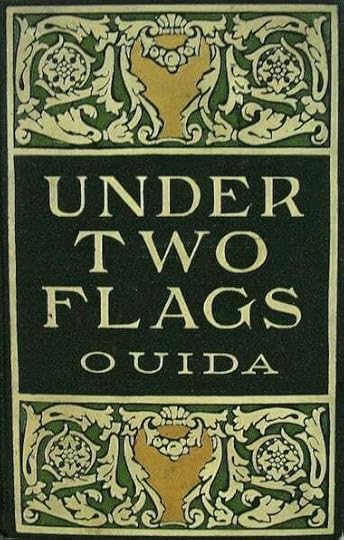
. . . . . . . . . . .
Settling in ItalyIn 1874 Ouida settled permanently with her mother in Florence, and pursued her work as a novelist. At first she rented an apartment at the Palazzo Vagnonville. Later, she moved to the Villa Farinola at Scandicci, three miles from Florence, where she lived in grand style, entertained lavishly, collected objets d’art, dressed expensively (but not always tastefully), drove good horses, and kept many dogs, to which she was deeply attached.
In The Massarenes (1897) she painted a lurid picture of the parvenu millionaire in smart London society. Ouida prized this book, but it failed to capture the public, and her popularity waned. Thereafter she chiefly wrote essays on social questions or literary criticisms for the leading magazines for scant remuneration.
Animal rights advocacy
Ouida’s affection for animals arose from her horror of injustice. Her faith in all humanitarian causes was earnest and sincere. She was an animal rights advocate and staunchly anti-vivisectionist She was also against hunting and the fur trade. One of her nonfiction books was The New Priesthood: A Protest against Vivisection (1897). She also wrote articles against animal experiments for periodicals of the day.
. . . . . . . . . . .
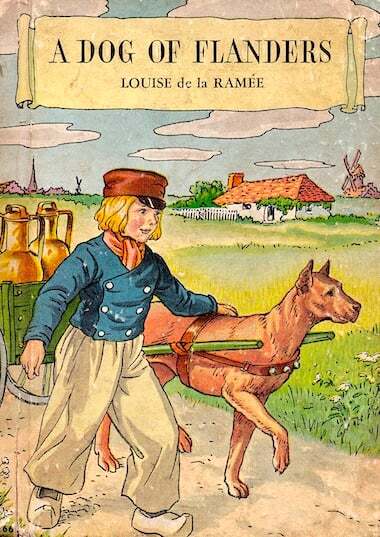
. . . . . . . . . . .
A decline in fortune, and a lost legacyImpractical, and not scrupulous in money matters, Ouida went into debt when her literary profits declined. She gradually fell into acute poverty. Her mother, who died in 1893, was buried in the Allori cemetery at Florence as a pauper. From 1894 to 1904, Ouida lived in a state often bordering on destitution, at the Villa Massoni, at Sant Alessio near Lucca.
From 1904 to 1908 she made her home at Via-reggio, where a peasant woman looked after her. Ouida’s tenement was shared with dogs that she brought in from the street.
Ouida had an artificial and affected manner, and although amiable to her friends was rude to strangers. Cynical, petulant, and prejudiced, she was quick at repartee. She was fond of painting, for which she believed she had more talent than for writing, and she was in the habit of making gifts of her sketches to her friends throughout her life.
She knew little firsthand of the Bohemians or of the wealthy men and women who were the subjects of her chief dramatis personæ. She described love like a precocious schoolgirl, and with an exuberance which, if it arrested the attention of young readers, moved the amusement of their elders.Yet, she wrote of the Italian peasants with knowledge and sympathy and of dogs with admirable fidelity.
Major works & more informationOuida published dozens of works of fiction, both as novels and volumes of collected short stories. She was almost unreasonably prolific! Here is her complete bibliography. A number of her works were adapted to early film. Some of the most popular of her works were:
Held in Bondage (1863, 1870, 1900)Strathmore (1865)Idalia (1867)Under Two Flags (1867)Tricotrin (1869)Puck (1870)A Dog of Flanders and other Stories (1872)Two Little Wooden Shoes (1874)Moths (1880)Bimbi, Stories for Children (1882)More information about Ouida (Louise de la Ramée)
Download several Ouida books (Emory University) Ouida’s works on Project Gutenberg Victorian Web Ouida on Smart Bitches, Trashy Books Listen to several books online at Librivox.orgThe post Ouida (Louise de la Ramée), English Victorian Novelist appeared first on Literary Ladies Guide.
December 17, 2024
Lore Segal, Wry Chronicler of Survivor & Refugee Life
Lore Segal (March 8, 1928 – October 7, 2024) chronicled her experiences as a Holocaust survivor and an immigrant in search of a home who eventually found her way to the United States. Her fiction was oddly humorous and yet deeply insightful.
Poet Carolyn Kizer, writing about Segal’s 1985 novel Her First American in the New York Times Book Review, said Segal came “closer than anyone to writing The Great American Novel,” even though, Kizer noted with a touch of irony, its main characters were Black people and Jewish refugees and it was not written by a man.
The Kindertransport
Born Lore Valier Groszmann in Vienna, the only child of a bank accountant and a homemaker, she was one of the first children to leave Nazi-occupied Europe on the Kindertransport trains that carried thousands of Jewish children to foster families and shelters in Britain.
While it is easy to romanticize this humanitarian effort, it’s important to remember that the British were willing to take Jewish children, but not adults, and that the rescued children were not necessarily accepted with loving arms.
Lore chronicled her experiences as a young refugee in her first novel, the semi-autobiographical Other People’s Houses, published in 1964. The novel portrays the experiences of “Lorle Groszmann.” It draws on her experiences of over ten years of being shuffled from one household to another and then from one country to another, eventually with her mother.
. . . . . . . . . .
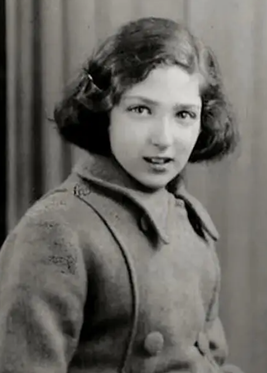
Lore in 1939, around the age of 11
. . . . . . . . .
The novel is saved from the maudlin by the narrator’s wise and unapologetic sense of self. Surrounded by crying parents and children, Lorle is curious about the journey she is about to undertake and eager to add to the list of countries she has visited. In the Netherlands, awaiting the ship that will carry her and other children in the transport to England, she wonders whether she can legitimately add that nation to her list—it is nighttime, and she cannot see anything.
During her first cold winter in England, in 1938, ten-year-old Lore wrote what she later described as a “tearjerker” letter to the refugee committee in England. It won her parents a visa to leave Austria. There, however, they were treated as enemy aliens—her father detained on the Isle of Man, and Lore and her mother restricted as to where in England they were allowed to live. Her father, eventually released from his internment and barred from working in any occupation except that of a butler, died shortly before the end of the war.
Arriving in the United States
Lore graduated from Bedford College, a women’s college at the University of London, in 1948. Then she went to the Dominican Republic, one of the few nations that would accept Jewish immigrants, to join other relatives. In 1951, Lore was finally allowed to enter the United States along with her mother, grandmother, and an uncle. They all lived in one apartment on 157th Street in Manhattan’s Washington Heights.
She married David Segal in 1961. An editor at Harper & Row and at Knopf, he died of a heart attack in 1970 at the age of forty. Social security and financial support from her late husband’s family allowed Lore to raise their two young children with the help of her mother.
Lore and her husband had moved into a rent-controlled apartment on 100th Street; shortly before David’s death, Lore’s mother Franzi had rented another apartment in the same building.
Finding Her Subject
Lore knew she was a writer since the age of twelve. Sick in bed as her mother read aloud to her from Charles Dickens, she later said, “the concept writer burst upon me. This is what I was going to do. It did not occur to me that I’d been doing it since I was ten.”
But before she could make money as a writer, Lore worked at a variety of jobs, including secretary and textile designer. She also took a course in creative writing at the New School in New York City.
At first, she said, she “couldn’t think of anything to write about. The Holocaust experience, it seemed to me, was already public knowledge … It was at a party that somebody asked me a question to which my answer was an account of the children’s transport that had brought me to England. It was my first experience of the silence of a roomful of people listening. I listened to the silence. I understood that I had a story to tell.”
In 1976, Lore published her second book, a novella titled Lucinella. Stanley Elkin praised this cult classic about a poet who is visited by Zeus as “shamelessly wonderful.” She also wrote children’s books, including Tell Me a Mitzi (1970), a tribute to her mother’s role in rearing her own children, and The Juniper Tree (1973), illustrated by her friend Maurice Sendak. She also taught — at Columbia, Princeton, and Bennington, for a while commuting between New York and Chicago to teach at the University of Illinois.
. . . . . . . . .
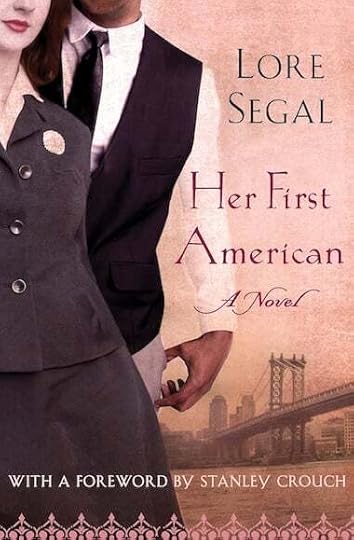
. . . . . . . . .
Her First AmericanHer First American was published in 1985. Ilka Weissnix, a recently arrived Jewish refugee, takes a train journey to the western United States to “look for America” in 1951. While traveling, she meets Carter Bayoux, a prominent Black intellectual and tragically alcoholic charmer who eventually becomes her lover.
As her cleverly chosen surname (Weissnix could be weiss nichts in German and might be interpreted to mean either knows nothing or not white or both) implies, Ilka is completely innocent; Carter is only too knowing, and it is the interaction of their perspectives that brings wisdom and tragic humor to the portrayal of their relationship in this novel.
Lore found her subject matter in the creative writing class that led her to write Other People’s Houses, and it was also in that class that she met the man who would serve as the model for the character of Carter Bayoux. “It’s my best book, but it took 18 years,” she said, speaking of Her First American to Matthew Schaer in a 2024 New York Times interview.
. . . . . . . . .
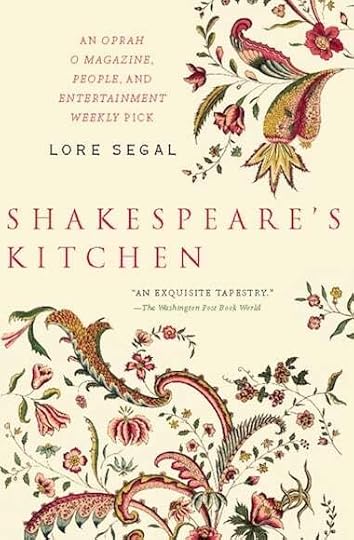
. . . . . . . . .
A Pulitzer FinalistShakespeare’s Kitchen, a novel-in-stories, was published in 2007, more than twenty years after Her First American. It features an older, more accomplished Ilka, who takes a position as a visiting scholar at a Connecticut university and finds herself embroiled in the petty politics of academe.
Many of the stories that became Shakespeare’s Kitchen were published in the New Yorker; the most famous is “The Reverse Bug,” about a conference on genocide that is disrupted by the screams of victims somehow mysteriously incorporated into the lecture hall’s sound system.
In 2008, when Segal was eighty, Shakespeare’s Kitchen was named a finalist for a Pulitzer Prize. That was the same year that independent publisher Melville House arranged to reissue Lucinella, which had gone out of print.
Melville House went on to publish her last novel, Half the Kingdom, in 2013. Described as “darkly comic,” it portrays an alarming uptick in advanced dementia cases in a hospital emergency room. In 2019, a collection of essays, short stories, and novel excerpts appeared as The Journal I Did Not Keep. That collection is an excellent choice for those who want to explore Lore Segal’s writing before deciding to commit to any one of her novels or short story collections.
Though she didn’t win the Pulitzer, she received numerous prestigious awards in her lifetime, including the National Endowment for the Arts, the National Endowment for the Humanities, O. Henry Prize, Guggenheim Fellowship, and many others. Here is the full list of her literary awards.
Writing Until the Very End
Lore Segal wrote right up to her death, despite the ailments of age, which in her case included diminished vision and the need for a walker. She published a series of stories about a group of elderly ladies who meet for lunch and then, because of the pandemic and later because of their decreasing mobility, meet on Zoom.
Many of these stories were collected in Ladies Lunch (2023). The ladies discuss aging and death, the loss of friends, and the failures of family members to understand what they want and need—always with the wisdom and wry humor that Segal brought to all her work.
“Stories About Us,” which appeared in the New Yorker the week before she died at the age of ninety-six, begins with the line, “Let’s get the complaining out of the way,” and ends with a discussion of the best word to use in a translation of Austrian Jewish poet Theodor Kramer.
Her editor for that story, Cressida Leyshon, recalled discussing edits with Segal while she was in hospice shortly before her death. Writing about those discussions, Leyshon said:
“Her voice was faint, but the lilt of her Austrian-accented English was clear, and she would often repeat aloud a sentence where I’d suggested an edit. Sometimes she’d agree, but at other times, with a merry incredulity, she’d say no. Of course, she implied, I should understand what a ridiculous suggestion this was! And, of course, she was right.”
. . . . . . . . . . .
Contributed by Lynne Weiss: Lynne’s writing has appeared in Black Warrior Review; Brain, Child; The Common OnLine; the Ploughshares blog; the [PANK] blog; Wild Musette; Main Street Rag; and Radcliffe Magazine. She received an MFA from the University of Massachusetts at Amherst and has won grants and residency awards from the Massachusetts Cultural Council, the Millay Colony, the Vermont Studio Center, and Yaddo. She loves history, theater, and literature, and for many years, has earned her living by developing history and social studies materials for educational publishers. She lives outside Boston, where she is working on a novel set in Cornwall and London in the early 1930s. You can see more of her work at LynneWeiss.
Further Reading and Sources
Gornick, Vivian. “Isn’t It Interesting?” New York Review of Books, 8 February 2024.Kizer, Carolyn. “The Education of Ilka Weissnix.” New York Times Book Review, 19 May 1985. Leyshon, Cressida. “Lore Segal Will Keep on Talking Through Her Stories.”The New Yorker, 13 October 2024. Marcus, James “How Lore Segal Saw the World in a Nutshell.” Atlantic Monthly 10 October, 2024. Schaer, Matthew “A Master Storyteller, at the End of Her Story.” 6 October 2024.
The New York Times, 6 October 2024. Smith, Harrison “Lore Segal, acclaimed novelist of memory and displacement, dies at 96.”
Washington Post, 9 October 2024.
Works by Lore Segal
Fiction
Other People’s Houses (1964)Lucinella: A Novel (1976)Her First American: A Novel (1985)Shakespeare’s Kitchen (2007)Half the Kingdom (2013)Ladies Lunch (2023)Children’s books
Tell Me a Mitzi. Illustrated by Harriet Pincus (1970)All the Way Home (1973)Tell Me a Trudy. Illustrated by Rosemary Wells (1977) The Story of Old Mrs. Brubeck and How She Looked for Trouble and Where She Found Him (1981) The Story of Mrs. Lovewright and Purrless Her Cat (1985) Morris the Artist (2003) Why Mole Shouted and Other Stories (2004)More Mole Stories and Little Gopher, Too (2005)The post Lore Segal, Wry Chronicler of Survivor & Refugee Life appeared first on Literary Ladies Guide.
Lore Segal, Chronicler of the Immigrant & Refugee Experience
Lore Segal (March 8, 1928 – October 7, 2024) chronicled her experiences as a Holocaust survivor and an immigrant in search of a home who eventually found her way to the United States. Her fiction was oddly humorous and yet deeply insightful.
Poet Carolyn Kizer, writing about Segal’s 1985 novel Her First American in the New York Times Book Review, said Segal came “closer than anyone to writing The Great American Novel,” even though, Kizer noted with a touch of irony, its main characters were Black people and Jewish refugees and it was not written by a man.
The Kindertransport
Born Lore Valier Groszmann in Vienna, the only child of a bank accountant and a homemaker, she was one of the first children to leave Nazi-occupied Europe on the Kindertransport trains that carried thousands of Jewish children to foster families and shelters in Britain.
While it is easy to romanticize this humanitarian effort, it’s important to remember that the British were willing to take Jewish children, but not adults, and that the rescued children were not necessarily accepted with loving arms.
Lore chronicled her experiences as a young refugee in her first novel, the semi-autobiographical Other People’s Houses, published in 1964. The novel portrays the experiences of “Lorle Groszmann.” It draws on her experiences of over ten years of being shuffled from one household to another and then from one country to another, eventually with her mother.
. . . . . . . . . .

Lore in 1939, around the age of 11
. . . . . . . . .
The novel is saved from the maudlin by the narrator’s wise and unapologetic sense of self. Surrounded by crying parents and children, Lorle is curious about the journey she is about to undertake and eager to add to the list of countries she has visited. In the Netherlands, awaiting the ship that will carry her and other children in the transport to England, she wonders whether she can legitimately add that nation to her list—it is nighttime, and she cannot see anything.
During her first cold winter in England, in 1938, ten-year-old Lore wrote what she later described as a “tearjerker” letter to the refugee committee in England. It won her parents a visa to leave Austria. There, however, they were treated as enemy aliens—her father detained on the Isle of Man, and Lore and her mother restricted as to where in England they were allowed to live. Her father, eventually released from his internment and barred from working in any occupation except that of a butler, died shortly before the end of the war.
Arriving in the United States
Lore graduated from Bedford College, a women’s college at the University of London, in 1948. Then she went to the Dominican Republic, one of the few nations that would accept Jewish immigrants, to join other relatives. In 1951, Lore was finally allowed to enter the United States along with her mother, grandmother, and an uncle. They all lived in one apartment on 157th Street in Manhattan’s Washington Heights.
She married David Segal in 1961. An editor at Harper & Row and at Knopf, he died of a heart attack in 1970 at the age of forty. Social security and financial support from her late husband’s family allowed Lore to raise their two young children with the help of her mother.
Lore and her husband had moved into a rent-controlled apartment on 100th Street; shortly before David’s death, Lore’s mother Franzi had rented another apartment in the same building.
Finding Her Subject
Lore knew she was a writer since the age of twelve. Sick in bed as her mother read aloud to her from Charles Dickens, she later said, “the concept writer burst upon me. This is what I was going to do. It did not occur to me that I’d been doing it since I was ten.”
But before she could make money as a writer, Lore worked at a variety of jobs, including secretary and textile designer. She also took a course in creative writing at the New School in New York City.
At first, she said, she “couldn’t think of anything to write about. The Holocaust experience, it seemed to me, was already public knowledge … It was at a party that somebody asked me a question to which my answer was an account of the children’s transport that had brought me to England. It was my first experience of the silence of a roomful of people listening. I listened to the silence. I understood that I had a story to tell.”
In 1976, Lore published her second book, a novella titled Lucinella. Stanley Elkin praised this cult classic about a poet who is visited by Zeus as “shamelessly wonderful.” She also wrote children’s books, including Tell Me a Mitzi (1970), a tribute to her mother’s role in rearing her own children, and The Juniper Tree (1973), illustrated by her friend Maurice Sendak. She also taught — at Columbia, Princeton, and Bennington, for a while commuting between New York and Chicago to teach at the University of Illinois.
. . . . . . . . .

. . . . . . . . .
Her First AmericanHer First American was published in 1985. Ilka Weissnix, a recently arrived Jewish immigrant, meets Carter Bayoux, a prominent Black intellectual and tragically alcoholic charmer. He becomes her teacher and lover during a train journey to the western United States, where she has gone, like a character in the famous Simon and Garfunkel song, to “look for America.”
As her cleverly chosen surname (Weissnix could be weiss nichts in German and might be interpreted to mean either knows nothing or not white or both) implies, Ilka is completely innocent; Carter is only too knowing, and it is the interaction of their perspectives that brings wisdom and tragic humor to the portrayal of their relationship in this novel.
Lore found her subject matter in the creative writing class that led her to write Other People’s Houses, and it was also in that class that she met the man who would serve as the model for the character of Carter Bayoux. “It’s my best book, but it took 18 years,” she said, speaking of Her First American to Matthew Schaer in a 2024 New York Times interview.
. . . . . . . . .

. . . . . . . . .
A Pulitzer FinalistShakespeare’s Kitchen, a novel-in-stories, was published in 2007, more than twenty years after Her First American. It features an older, more accomplished Ilka, who takes a position as a visiting scholar at a Connecticut university and finds herself embroiled in the petty politics of academe.
Many of the stories that became Shakespeare’s Kitchen were published in the New Yorker; the most famous is “The Reverse Bug,” about a conference on genocide that is disrupted by the screams of victims somehow mysteriously incorporated into the lecture hall’s sound system.
In 2008, when Segal was eighty, Shakespeare’s Kitchen was named a finalist for a Pulitzer Prize. That was the same year that independent publisher Melville House arranged to reissue Lucinella, which had gone out of print.
Melville House went on to publish her last novel, Half the Kingdom, in 2013. Described as “darkly comic,” it portrays an alarming uptick in advanced dementia cases in a hospital emergency room. In 2019, a collection of essays, short stories, and novel excerpts appeared as The Journal I Did Not Keep. That collection is an excellent choice for those who want to explore Lore Segal’s writing before deciding to commit to any one of her novels or short story collections.
Though she didn’t win the Pulitzer, she received numerous prestigious awards in her lifetime, including the National Endowment for the Arts, the National Endowment for the Humanities, O. Henry Prize, Guggenheim Fellowship, and many others. Here is the full list of her literary awards.
Writing Until the Very End
Lore Segal wrote right up to her death, despite the ailments of age, which in her case included diminished vision and the need for a walker. She published a series of stories about a group of elderly ladies who meet for lunch and then, because of the pandemic and later because of their decreasing mobility, meet on Zoom.
Many of these stories were collected in Ladies Lunch (2023). The ladies discuss aging and death, the loss of friends, and the failures of family members to understand what they want and need—always with the wisdom and wry humor that Segal brought to all her work.
“Stories About Us,” which appeared in the New Yorker the week before she died at the age of ninety-six, begins with the line, “Let’s get the complaining out of the way,” and ends with a discussion of the best word to use in a translation of Austrian Jewish poet Theodor Kramer.
Her editor for that story, Cressida Leyshon, recalled discussing edits with Segal while she was in hospice shortly before her death. Writing about those discussions, Leyshon said:
“Her voice was faint, but the lilt of her Austrian-accented English was clear, and she would often repeat aloud a sentence where I’d suggested an edit. Sometimes she’d agree, but at other times, with a merry incredulity, she’d say no. Of course, she implied, I should understand what a ridiculous suggestion this was! And, of course, she was right.”
. . . . . . . . . . .
Contributed by Lynne Weiss: Lynne’s writing has appeared in Black Warrior Review; Brain, Child; The Common OnLine; the Ploughshares blog; the [PANK] blog; Wild Musette; Main Street Rag; and Radcliffe Magazine. She received an MFA from the University of Massachusetts at Amherst and has won grants and residency awards from the Massachusetts Cultural Council, the Millay Colony, the Vermont Studio Center, and Yaddo. She loves history, theater, and literature, and for many years, has earned her living by developing history and social studies materials for educational publishers. She lives outside Boston, where she is working on a novel set in Cornwall and London in the early 1930s. You can see more of her work at LynneWeiss.
Further Reading and Sources
Gornick, Vivian. “Isn’t It Interesting?” New York Review of Books, 8 February 2024.Kizer, Carolyn. “The Education of Ilka Weissnix.” New York Times Book Review, 19 May 1985. Leyshon, Cressida. “Lore Segal Will Keep on Talking Through Her Stories.”The New Yorker, 13 October 2024. Marcus, James “How Lore Segal Saw the World in a Nutshell.” Atlantic Monthly 10 October, 2024. Schaer, Matthew “A Master Storyteller, at the End of Her Story.” 6 October 2024.
The New York Times, 6 October 2024. Smith, Harrison “Lore Segal, acclaimed novelist of memory and displacement, dies at 96.”
Washington Post, 9 October 2024.
Works by Lore Segal
Fiction
Other People’s Houses (1964)Lucinella: A Novel (1976)Her First American: A Novel (1985)Shakespeare’s Kitchen (2007)Half the Kingdom (2013)Ladies Lunch (2023)Children’s books
Tell Me a Mitzi. Illustrated by Harriet Pincus (1970)All the Way Home (1973)Tell Me a Trudy. Illustrated by Rosemary Wells (1977) The Story of Old Mrs. Brubeck and How She Looked for Trouble and Where She Found Him (1981) The Story of Mrs. Lovewright and Purrless Her Cat (1985) Morris the Artist (2003) Why Mole Shouted and Other Stories (2004)More Mole Stories and Little Gopher, Too (2005)The post Lore Segal, Chronicler of the Immigrant & Refugee Experience appeared first on Literary Ladies Guide.
December 16, 2024
Effie Lee Newsome, Harlem Renaissance Era Poet
Effie Lee Newsome (1885–1979), was a writer, illustrator, and librarian whose poetry for adults and children made her a notable literary figure of the Harlem Renaissance.
From the time her poetry was first published in NAACP’s The Crisis, her work was regularly featured in anthologies and other publications, particularly in the 1920s.
Mary Effie Lee was born in Philadelphia, Pennsylvania, and raised in Wilberforce, Ohio. Her parents were Mary Elizabeth Ashe Lee and Benjamin Franklin Lee. Her clergyman father was editor-in-chief of the Christian Recorder and served as president of Wilberforce University.
Fascinating side note: Benjamin Franklin Lee was descended from free Blacks who founded the Gouldtown community (New Jersey) in the 18th century. Gouldtown was once cited as “America’s Oldest Negro Community.”
Effie took classes at Wilberforce University, Oberlin College, Philadelphia Academy of the Arts, and the University of Pennsylvania. Though she didn’t complete a degree, she was able to explore her dual interests in art and writing. She and her sister Consuelo, also a poet, both worked as illustrators for children’s magazines.
The Brownie’s Book and the Little Page
Effie began publishing her poems and stories in The Crisis in 1915. One of her most anthologized poems, “Morning Light: The Dew-Drier,” appeared in a 1918 issue. Her poems were regularly featured in The Brownie’s Book, a magazine for Black children that was a spinoff of The Crisis — both founded by W.E.B. Du Bois. Jessie Redmon Fauset was its editor.
As a major contributor to The Brownie’s Book, Effie was among the first contingent of writers to create poems expressly for Black children. Subsequently, writing for children became a longstanding professional interest for Effie and something for which she became known. In 1924, she became the editor of the children’s column “Little Page” in The Crisis, a position that lasted for a decade. Her poetry encouraged younger readers to appreciate their worth and beauty, and to marvel at the world around them.
Marriage and a profession
In 1920, after marrying Rev. Henry Nesby Newsome, an African Methodist Episcopal Church minister, she began using the name of Effie Lee Newsome. Until then she had been Mary Effie Lee, her given family name.
The couple briefly lived in Birmingham, Alabama, where she taught in an elementary school and worked as the school librarian. When they returned to Wilberforce, she continued to work as a librarian in various schools and colleges. Her last position was at Wilberforce University, where she remained until her retirement in 1963.
. . . . . . . . . .
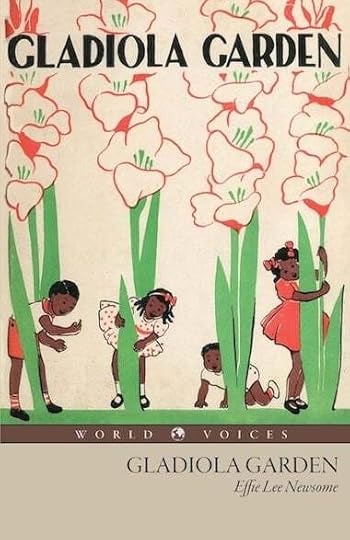
See also:
19 Poems by Effie Lee Newsome
. . . . . . . . . .
Anthologies and two books of collected poetryThroughout the 1920s, Effie continued to contribute to Black poetry anthologies. In her biographical note in Caroling Dusk: An Anthology of Verse by Negro Poets, a classic 1927 collection edited by Countee Cullen, she described herself as “ a lover of the out-of-doors, and of the beautiful.”
Her only published collection, Gladiola Garden: Poems of Outdoors and Indoors for Second Grade Readers, was published in 1940.
The Oxford Companion to American Literature, stated that Effie’s writing gave children “two great gifts: a keen sense of their own inestimable value and an avid appreciation of the natural world.” A digital copy of this book, with its generous collection of dozens of poems, can be viewed here (New York Public Library Digital Collections).
. . . . . . . . . .
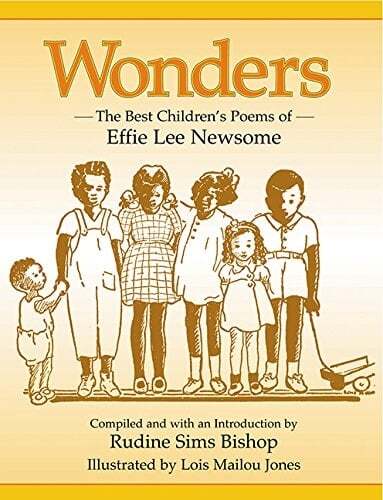
. . . . . . . . . .
Wonders: The Best Children’s Poems of Effie Lee Newsome was published in 1999. It includes poems from Gladiola Garden, The Brownies’ Book magazine, and “The Little Page” column from The Crisis. According to the publisher, this collection “reintroduces Effie Lee Newsome and the spirit of her work to a new generation of children.”
Not a lot more is known about Effie Lee Newsome’s life, and it’s next to impossible to find other images of her than the one shown here. Hers seemed a life of steady work and creativity with little drama or upheaval. Though Effie never lived in New York City, her thoughtful poetry was a valued contribution to Harlem Renaissance era literature. Perhaps the time for her work to be more widely known and studied is at hand.
Sources and more information African American Registry Afro-American: “Effie Lee Newsome, African American Poet of the 1920s” Children’s Literature Association Quarterly; Johns Hopkins University Press, Summer 1988.Dictionary of Literary Biography, Volume 76, Afro-American Writers 1940 – 1955 (1988)Notable Black American Women Book 1. Edited by Jessie Carney Smith,1992The Concise Oxford Companion to African American Literature, First edition, 1997The post Effie Lee Newsome, Harlem Renaissance Era Poet appeared first on Literary Ladies Guide.
December 12, 2024
The Heart of a Woman by Georgia Douglas Johnson (1918 – full text)
Georgia Douglas Johnson (1880 – 1966) was a respected poet and playwright associated with the Harlem Renaissance movement. Following is the full text of her first published collection, The Heart of a Woman and Other Poems (1918).
The Heart of a Woman was followed by Bronze (1922) and An Autumn Love Cycle (1928). Many years later she came out with Share My World (1962). With four published collections, it’s quite likely that Georgia was the most widely published of the female poets of her era.
Georgia’s poems were published in numerous periodicals and anthologies, particularly in the 1920s. In her poetry, Georgia addressed issues of race as well as universal themes of love, motherhood, and being a woman in a male-dominated world.
The Heart of a Woman featured poems that were specific to Georgia’s life, yet universal to the female experience. They spoke of love and hope, as well as of loneliness and disappointments. Her frustration with women’s constrained roles was expressed with grace and subtlety.
The Heart of a Woman (1981), the title of the fourth volume in Maya Angelou‘s seven-part autobiography series that began with I Know Why The Caged Bird Sings, is named for the first, eponymous poem in this collection.
The Heart of a Woman was published by the Cornhill Company (Boston) and is in the public domain. You can see what it looked like when it was first published on Internet Archive.
. . . . . . . . . .
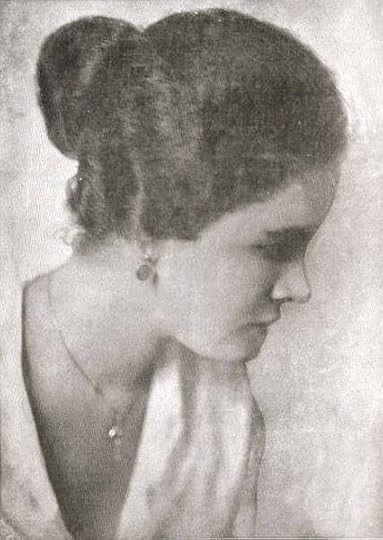
Learn more about Georgia Douglas Johnson
See also: Bronze (1922 – full text)
. . . . . . . . . .
by Georgia Douglas JohnsonContents
Introduction by William Stanley Braithwaite
The Heart of a Woman
Gossamer
The Dreams of the Dreamer
Sympathy
Contemplation
Dead Leaves
Dawn
Elevation
Whither?
Quest
Mate
Emblems
Mirrored
Pent
Pages from Life
Recall
Foredoom
Peace
Despair
Eventide
Gethsemane
Gilead
Impelled
In Quest
Inevitably
Isolation
Joy
Memory
Modulations
Omega
Poetry
Posthumous
Query
Recompense
Repulse
Rhythm
Smothered Fires
Supreme
Sympathy
Tears and Kisses
The Measure
Thrall
Tired
What Need Have I For Memory?
When I Am Dead
Whene’er I Lift My Eyes to Bliss
Where?
Youth
. . . . . . . . . . .
Introduction by William Stanley Braithwaite
The poems in this book are intensely feminine and for me this means more than anything else that they are deeply human. We are yet scarcely aware, in spite of our boasted twentieth-century progress, of what lies deeply hidden, of mystery and passion, of domestic love and joy and sorrow, of romantic visions and practical ambitions, in the heart of a woman.
The emancipation of woman is yet to be wholly accomplished; though woman has stamped her image on every age of the world’s history, and in the heart of almost every man since time began, it is only a little over half of a century since she has either spoke or acted with a sense of freedom.
During this time she has made little more than a start to catch up with man in the wonderful things he has to his credit; and yet all that man has to his credit would scarcely have been achieved except for the devotion and love and inspiring comradeship of woman. Here, then, is lifted the veil, in these poignant songs and lyrics. To look upon what is revealed is to give one a sense of infinite sympathy; to make one kneel in spirit to the marvelous patience, the wonderful endurance, the persistent faith, which are hidden in this nature.
The heart of a woman falls back with the night.
And enters some alien cage in its plight,
And tries to forget it has dreamed of the stars
While it breaks, breaks, breaks on the sheltering bars.
sings the poet.
And the songs of the singer
Are tones that repeat
The cry of the heart
Till it ceases to beat.
This verse just quoted is from “The Dreams of the Dreamer,” and with the previous quotation tells us that this woman’s heart is keyed in the plaintive, knows the sorrowful agents of life and experience which knock and enter at the door of dreams.
But women have made the saddest songs of the world, Sappho / no less than Elizabeth Barrett Browning / Ruth the Moabite/ poetess gleaning in the fields of Boaz no less than Amy Levy / the Jewess who broke her heart against the London pavements; and no less does sadness echo its tender and appealing sigh in these songs and lyrics of Georgia Douglas Johnson. But sadness is a kind of felicity with woman, paradoxical as it may seem; and it is so because through this inexplicable felicity they touched, intuitionally caress, reality.
So here engaging life at its most reserved sources, whether the form or substance through which it articulates be nature, or the seasons, touch of hands or lips, love, desire, or any of the emotional abstractions which sweep like fire or wind or cooling water through the blood, Mrs. Johnson creates just that reality of woman’s heart and experience with astonishing raptures.
It is a kind of privilege to know so much about the secrets of woman’s nature, a privilege all the more to be cherished when given, as in these poems, with such exquisite utterance, with such a lyric sensibility.
— William Stanley Braithwaite, Cambridge, Massachusetts
. . . . . . . . . . .
The Heart of a Woman
The heart of a woman goes forth with the dawn,
As a lone bird, soft winging, so restlessly on,
Afar o’er life’s turrets and vales does it roam
In the wake of those echoes the heart calls home.
The heart of a woman falls back with the night,
And enters some alien cage in its plight,
And tries to forget it has dreamed of the stars
While it breaks, breaks, breaks on the sheltering bars.
. . . . . . . . . . .
Gossamer
The dreams of the dreamer
Are life-drops that pass
The break in the heart
To the soul’s hour-glass.
The songs of the singer
Are tones that repeat
The cry of the heart
‘Till it ceases to beat.
. . . . . . . . . . .
The Dreams of the Dreamer
The dreams of the dreamer
Are life-drops that pass
The break in the heart
To the soul’s hour-glass.
The songs of the singer
Are tones that repeat
The cry of the heart
‘Till it ceases to beat.
. . . . . . . . . . .
Sympathy
My joy leaps with your ecstasy,
In sympathy divine;
The smiles that wreathe upon your lips.
Find sentinels on mine:
Your lightest sigh I’m echoing,
I tremble with your pain,
And all your tears are falling
In my heart like bitter rain.
. . . . . . . . . . .
Contemplation
We stand mute!
No words can paint such fragile imagery,
Those prismic gossamers that roll
Beyond the sky-line of the soul;
We stand mute!
. . . . . . . . . . .
Dead Leaves
The breaking dead leaves ‘neath my feet
A plaintive melody repeat,
Recalling shattered hopes that lie
As relics of a bygone sky.
Again I thread the mazy past,
Back where the mounds are scattered fast –
Oh! foolish tears, why do you start,
To break of dead leaves in the heart?
. . . . . . . . . . .
Dawn
Trailing night’s sand-sifted stars,
Rainbows sweep, as day unbars.
Fragrant essences of morn,
Bathe humanity — new-born!
. . . . . . . . . . .
Elevation
There are highways in the soul,
Heights like pyramids that rise
Far beyond earth-veiled eyes,
Sweeping through the barless skies
O’er the line where daylight dies —
There are highways in the soul!
. . . . . . . . . . .
Whither?
Minutes swiftly throb and pass,
Shadows cross the dial-glass,
Speeding ever to some call,
Weary world and shadows, all.
Down the closing aisles of day,
Tramping footsteps die away,
But no tidings thread the gloom,
From the hushed and silent tomb.
. . . . . . . . . . .
Quest
The phantom happiness I sought
O’er every crag and moor;
I paused at every postern gate,
And knocked at every door;
In vain I searched the land and sea,
E’en to the inmost core,
The curtains of eternal night
Descend — my search is o’er.
. . . . . . . . . . .
Mate
Our separate winding ways we trod,
Along the highways, unto God,
Unbonded by the clasp of hand,
Without a vow — we understand.
Estranged for aye, the fusing kiss.
Omnipotent, we bide in this —
They need no trammeling of bars
Whose souls were welded with the stars.
. . . . . . . . . . .
Emblems
A wordless kiss, a stifled sigh,
A trembling lip, a downcast eye,
“Alas,” they say,
“A-day, a-day,”
The cruse has failed, the lamp must die!
. . . . . . . . . . .
Mirrored
When lone and solitaire within your chamber,
With lamp unlit, as evening shades unroll.
If you reveal the trail your thoughts are taking,
I then may read the riddle of your soul.
For it is then, the tired mind unveiling,
Drifts stark into the holy after-glow.
Within the hour of quiet meditation.
The tidal thoughts, like limpid waters, flow.
. . . . . . . . . . .
Pent
The rain is falling steadily
Upon the thirsty earth,
While dry-eyed, I remain, and calm
Amid my own heart’s dearth.
Break! break! ye flood-gates of my tears
All pent in agony,
Rain, rain! upon my scorching soul
And flood it as the sea!
. . . . . . . . . . .
Pages from Life
Not for your tender eyes that shine,
Nor for your red lips pulsing wine,
I love you, dear: your soul divine.
In sweet captivity, holds mine!
. . .
The tender eyes have lost their glow,
The flagons of the lips run low.
The autumn trembles in the air, —
A woman passes solitaire!
. . . . . . . . . . .
Recall
Winter — aback sweeps the inward eye,
Fleet o’er the trail to a rose-wreathed sky,
Girt by a cordon of dreams I dwell
Deep in the heart of the old-time spell.
Almost, the tones of your whispered word,
Almost! the thrill that your dear lips stirred,
Almost!! that wild pulsing throb again —
Almost!!! —
(‘Tis winter, the falling rain).
. . . . . . . . . . .
Foredoom
Her life was dwarfed, and wed to blight,
Her very days were shades of night,
Her every dream was born entombed.
Her soul, a bud, — that never bloomed.
. . . . . . . . . . .
Peace
I rest me deep within the wood,
Drawn by its silent call,
Far from the throbbing crowd of men
On nature’s breast I fall.
My couch is sweet with blossoms fair,
A bed of fragrant dreams,
And soft upon my ear there falls
The lullaby of streams.
The tumult of my heart is stilled,
Within this sheltered spot.
Deep in the bosom of the wood.
Forgetting, and — forgot!
. . . . . . . . . . .
Despair
The curtains of twilight are drawn in the west
And vespers are sweet on the air,
While I, through my leafless, ungarlanded way
But pause at the gates of despair.
Good-bye to the hopes that were never fulfilled,
Good-bye to the fond dreams that failed.
Good-bye to my dead that has never been born.
Good-bye to love’s ship that ne’er sailed.
. . . . . . . . . . .
Eventide
The silence of the brooding night,
Enfolds me with its eerie light;
I lie upon its shadowed breast
A pilgrim, wearying for rest
Nightfall! thy sable curtains steep
My very soul in solace deep,
God sends thee with thy soothing balms,
That I may falter to thy arms.
. . . . . . . . . . .
Gethsemane
Into the garden of sorrow,
Some day we all must roam,
If not to-day, then to-morrow,
Bow ‘neath its purple dome.
Out from the musk-laden banqueting halls,
Doffing our mirth-spangled vestments like thralls,
Softly we wend to Gethsemane,
In the hour that sorrow calls!
. . . . . . . . . . .
Gilead
Walk within thy own heart’s temple, child, and rest,
What you seek abides forever in thy breast.
Closer than thy folded arm
Is the soul-renewing-balm,
Walk within thy own heart’s temple, child, and rest.
. . . . . . . . . . .
Impelled
Athwart the sky the great sun sails,
Through aeons thus, the daylight trails,
And man, living breath of the sod
Beholding, in his heart knows God.
Throughout the night’s long brooding deep,
Earth’s trustful children die-to-sleep.
But with the whisperings of morn
Awake, unto the day, new-born.
The mystery of earth untold,
The great infinite, none behold,
Forge ever new the spiral chain,
Revolving man to God again.
. . . . . . . . . . .
In Quest
With the first blush of morning, my soul is awing,
Away o’er the phantom lands free, wandering,
I seek thee in hamlet, in woodland, and hall.
Till night-shades, enfolding my tired heart, fall.
Yet ever and alway, like the thrush in a tree.
My heart lifts its preluding love-song to thee;
I call through the days, through the long weary years.
And slumber at night-fall, refreshed by my tears.
. . . . . . . . . . .
Inevitably
There’s nothing in the world that clings
As does a memory that stings;
While happy hours fade and pass,
Like shadows in a looking-glass.
. . . . . . . . . . .
Isolation
Alone! yes, evermore alone — isolate each his way,
Though hand is echoing to hand vain sophistries of clay.
Within that veilèd, mystic place where bides the inmost soul,
No twain shall pass while tides shall wax, nor changing seasons roll.
Enisled, apart our pilgrimage, despite the arms that twine.
Despite the fusing kiss that wields the magic charm of wine.
Despite the interplay of sigh, the surge of sympathy.
We tread in solitude remote, the trail of destiny!
. . . . . . . . . . .
Joy
There’s a soft rosy glow o’er the whole world to-day,
There’s a freshness and fragrance that trembles in May,
There’s a lilt in the music that vibrates and thrills
From the uttermost glades to the tops of the hills.
Oh! I am so happy, my heart is so light.
The shades and the shadows have vanished from sight,
This wild pulsing gladness throbs like a sweet pain —
O soul of me, drink, ere night falleth again!
. . . . . . . . . . .
Memory
Love’s roses I gathered, all dewy, in May,
My heart holds the breath of their attar to-day;
And now, while the blasts of the winter winds ring,
I hear not the tempest, I’m dreaming of Spring.
. . . . . . . . . . .
Modulations
The petals of the faded rose
Commingle silently,
One with the atoms of the dust,
One with the chaliced sea. –
The essence of my fleeting youth
Caught in the web of time,
Exhales within the springing flowers
Or breathes in love sublime.
. . . . . . . . . . .
Omega
The fragile fabric of our dream
Drifts as a feather down life’s stream
The long defile of empty days
Grim silhouetted, mock my gaze.
Though oft escapes the stifled sigh,
A desert ever broods my eye —
Since you have utterly forgot,
God grant that I remember not!
. . . . . . . . . . .
Poetry
Behold! the living thrilling lines
That course the blood like madd’ning wines,
And leap with scintillating spray
Across the guards of ecstasy.
The flame that lights the lurid spell
Springs from the soul’s artesian well,
Its fairy filament of art
Entwines the fragments of a heart.
. . . . . . . . . . .
Posthumous
Of what avail the tardy showers,
To the famished summer flowers?
All in vain the rain-drops cry,
Dead things never make reply.
Life’s belated cup of bliss,
Woo the weary lips to kiss,
When the singing is a sigh.
Pulses quivering, to die.
. . . . . . . . . . .
Query
Is she the sage who will not sip
The cup love presses to her lip?
Or she who drinks the mad cup dry,
And turns with smiling face — to die?
. . . . . . . . . . .
Recompense
Roses after rain,
Pleasure after pain,
Happiness will soothe the sigh,
Smiles await the tear-dimmed eye
Bloom will follow blight,
Daylight trails the night,
Life is sweeter
Love is deeper
In the heart’s twilight!
. . . . . . . . . . .
Repulse
Nobody cares when I am glad,
I beat upon their hearts in glee,
“Drink, drink joy’s brimming cup with me,”
All echoless, my ecstasy —
Nobody cares when I am glad.
Nobody cares when I am sad,
Whene’er I seek compassion’s breast,
I falter wounded from my quest
Back! back into my heart, sore prest —
Nobody cares when I am sad.
. . . . . . . . . . .
Rhythm
Oh, my fancy teems with a world of dreams, —
They revolve in a glittering fire,
How they twirl and go with the tunes that flow
On the breath of my soul-strung lyre.
. . . . . . . . . . .
Smothered Fires
A woman with a burning flame
Deep covered through the years
With ashes. Ah! she hid it deep,
And smothered it with tears.
Sometimes a baleful light would rise
From out the dusky bed,
And then the woman hushed it quick
To slumber on, as dead.
At last the weary war was done
The tapers were alight,
And with a sigh of victory
She breathed a soft — good-night!
. . . . . . . . . . .
Supreme
The fairest lips are those we kiss,
With greatest ecstasy and bliss;
The brightest eyes, are those that shine,
Unchangingly through changing time;
The greatest love is that we know.
When life is just an afterglow.
. . . . . . . . . . .
Sympathy
My joy leaps with your ecstasy,
In sympathy divine;
The smiles that wreathe upon your lips.
Find sentinels on mine:
Your lightest sigh I’m echoing,
I tremble with your pain,
And all your tears are falling
In my heart like bitter rain.
. . . . . . . . . . .
Tears and Kisses
There are tears sweet, refreshing like dewdrops that rise,
There are tears far too deep for the lakes of the eyes.
There are kisses like thistledown, fitfully sped,
There are kisses that live in the hearts of the dead.
. . . . . . . . . . .
The Measure
Fierce is the conflict — the battle of eyes,
Sure and unerring, the wordless replies,
Challenges flash from their ambushing caves
Men, by their glances, are masters or slaves.
. . . . . . . . . . .
Thrall
Fragile, tiny, just a sprite,
Holding me a thrall bedight,
Stronger than a giant’s wand
Serves the word of your command.
Out from rushing worlds, though low
Should you whisper, I would know,
And would answer, though the breath
Be the gateway unto death.
. . . . . . . . . . .
Tired
I’m tired, days and nights to me
Drag on in slow monotony,
With not a single star in sight
To lend a gleam of cheering light.
I’m tired, there are none to care
That I am drifting to despair:
O shadows! take me to your breast
For I am tired — I would rest.
. . . . . . . . . . .
What Need Have I For Memory?
What need have I for memory,
When not a single flower
Has bloomed within life’s desert
For me, one little hour.
What need have I for memory
Whose burning eyes have met
The corse of unborn happiness
Winding the trail regret?
. . . . . . . . . . .
When I Am Dead
When I am dead, withhold, I pray, your blooming legacy;
Beneath the willows did I bide, and they should cover me;
I longed for light and fragrance, and I sought them far and near,
O, it would grieve me utterly, to find them on my bier!
. . . . . . . . . . .
Whene’er I Lift My Eyes to Bliss
Whene’er I lift my eyes to bliss,
I stagger blind with pain,
Afar into the folding night
The silence, and the rain.
Whene’er I feel the urge of Spring,
A throbbing, unknown woe
Enfolds me; I am desolate
When love is calling low.
. . . . . . . . . . .
Where?
I called you through the silent night
Across the brooding deep,
I sought you in the shadowland
From out the world — asleep;
No answer echoed to my call,
And now my way I thread
About the lowly mounds that rise
Among the silent dead.
Though voiceless, you will hear my call,
Your soul will heed my cry.
Will rise, and mock the prison where
Your bones recumbent lie.
. . . . . . . . . . .
Youth
The dew is on the grasses, dear,
The blush is on the rose.
And swift across our dial-youth,
A shifting shadow goes.
The primrose moments, lush with bliss,
Exhale and fade away,
Life may renew the Autumn time,
But nevermore the May!
 Women Poets of the Harlem Renaissance to Rediscover and Read
Women Poets of the Harlem Renaissance to Rediscover and Read
The post The Heart of a Woman by Georgia Douglas Johnson (1918 – full text) appeared first on Literary Ladies Guide.
December 11, 2024
10 Contemporary Novels About Bookstores and Libraries
For those of us who love (or make that obsessed with) books, novels about books, bookstores, and libraries are the icing on the cake. Reading about books and bookish people in fictional narratives, might seem odd, but for the devout bibliophile, it makes perfect sense.
Presented here is a selection of contemporary novels whose stories are centered around bookstores or libraries. What could be cozier reading on a chilly day accompanied by a warm drink, a blanket, and a four-legged friend or two?
. . . . . . . . . .
The Personal Librarian by Marie Benedict
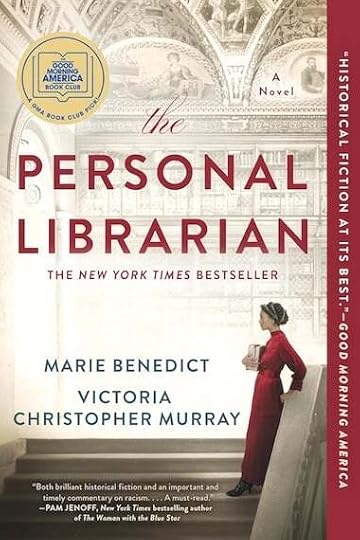
From the publisher: A remarkable novel about J. P. Morgan’s personal librarian, Belle da Costa Greene, the Black American woman who was forced to hide her true identity and pass as white in order to leave a lasting legacy that enriched our nation, from New York Times bestselling authors Marie Benedict and Victoria Christopher Murray.
Belle da Costa Greene is hired by J. P. Morgan to curate a collection of rare manuscripts, books, and artwork for his newly built Pierpont Morgan Library. Belle becomes a fixture in New York City society and one of the most powerful people in the art and book world, known for her impeccable taste and shrewd negotiating for critical works as she helps create a world-class collection.
The Personal Librarian tells the story of an extraordinary woman, famous for her intellect, style, and wit, and shares the lengths she must go to—for the protection of her family and her legacy—to preserve her carefully crafted white identity in the racist world in which she lives.
The Personal Librarian on Bookshop.org*
The Personal Librarian on Amazon*
. . . . . . . . . .
The Bookshop by Penelope Fitzgerald
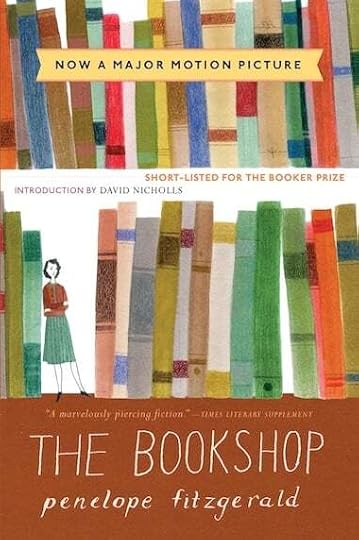
From the publisher: Set in 1959, Florence Green, a kindhearted widow with a small inheritance, risks everything to open a bookshop—the only bookshop—in the seaside town of Hardborough. By making a success of a business so impractical, she invites the hostility of the town’s less prosperous shopkeepers.
By daring to enlarge her neighbors’ lives, she crosses Mrs. Gamart, the local arts doyenne. Florence’s warehouse leaks, her cellar seeps, and the shop is apparently haunted. Only too late does she begin to suspect the truth: a town that lacks a bookshop isn’t always a town that wants one.
The Bookshop by Penelope Fitzgerald, published in 1978, was adapted to film in 2017, to mixed reviews by audiences and critics. Devotees of media about bookstores should nevertheless get some enjoyment from it.
The Bookshop on Bookshop.org*
The Bookshop on Amazon*
. . . . . . . . . .
The Last Bookshop in London: A Novel of World War IIby Madeline Martin
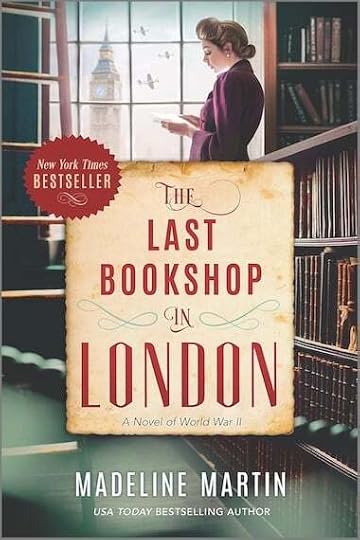
From the publisher: August 1939 — London prepares for war as enemy forces sweep across Europe. Grace Bennett has always dreamed of moving to the city, but the bunkers and drawn curtains that she finds on her arrival are not what she expected. And she certainly never imagined she’d wind up working at Primrose Hill, a dusty old bookshop nestled in the heart of London.
Through blackouts and air raids as the Blitz intensifies, Grace discovers the power of storytelling to unite her community in ways she never dreamed—a force that triumphs over even the darkest nights of the war. This 2021 publication has become a bestseller and a reader favorite.
The Last Bookshop in London on Bookshop.org*
The Last Bookshop in London on Amazon*
. . . . . . . . . . .
The Booklover’s Library by Madeline Martin
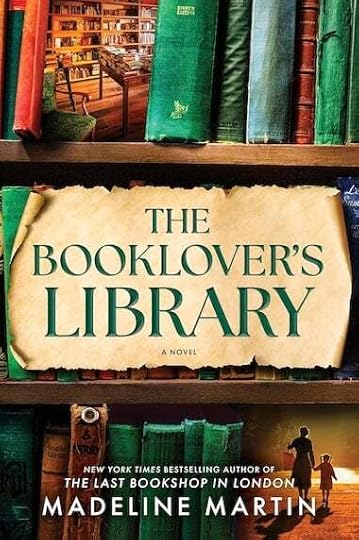
From the publisher: A heartwarming story about a mother and daughter in wartime England and the power of books that bring them together, by the bestselling author of The Last Bookshop in London. In Nottingham, England, widow Emma Taylor finds herself in desperate need of a job.
She and her beloved daughter Olivia have always managed just fine on their own, but with the legal restrictions prohibiting widows with children from most employment opportunities, she’s left with only one option: persuading the manageress at Boots’ Booklover’s Library to take a chance on her with a job.
When the threat of war in England becomes a reality, Olivia must be evacuated to the countryside. In the wake of being separated from her daughter, Emma seeks solace in the unlikely friendships she forms with her neighbors and coworkers, and a renewed sense of purpose through the recommendations she provides to the library’s quirky regulars. But the job doesn’t come without its difficulties … As the Blitz intensifies in Nottingham and Emma fights to reunite with her daughter, she must learn to depend on her community and the power of literature more than ever to find hope in the darkest of times.
The Booklover’s Library on Bookshop.org*
The Booklover’s Library on Amazon*
. . . . . . . . . . .
The Lost Bookshop by Evie Woods
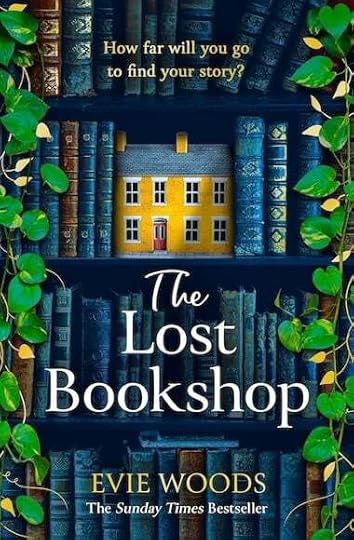
From the publisher: “The thing about books,” she said “is that they help you to imagine a life bigger and better than you could ever dream of.” On a quiet street in Dublin, a lost bookshop is waiting to be found .. For too long, Opaline, Martha and Henry have been the side characters in their own lives.
But when a vanishing bookshop casts its spell, these three unsuspecting strangers will discover that their own stories are every bit as extraordinary as the ones found in the pages of their beloved books. And by unlocking the secrets of the shelves, they find themselves transported to a world of wonder… where nothing is as it seems.
The Lost Bookshop on Bookshop.org*
The Lost Bookshop on Amazon*
. . . . . . . . . .
The English Bookshop by Janis Wildy
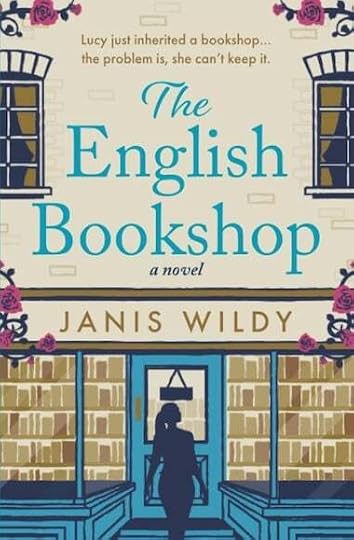
From the publisher: Lucy isn’t ready for a life-changing journey when it comes knocking; she just wants to keep everything the same as the day her stepfather died. Unfortunately, expenses have overtaken her small family business, forcing her to do something quickly to keep it afloat.
When Lucy finds out she has inherited a bookshop in England, she travels to see it, intent on selling the property as soon as possible. But once there she meets a wonderfully kind group of villagers, including a handsome bookseller, who challenge her decision to make a quick sale.
What begins as a way to make money for her business in Seattle becomes an experience that uncovers family secrets and reveals the kindness of strangers. In England, Lucy just might rewrite her past in order to follow her heart.
The English Bookshop on Amazon*
. . . . . . . . . .
The Paris Bookseller by Kerri Maher
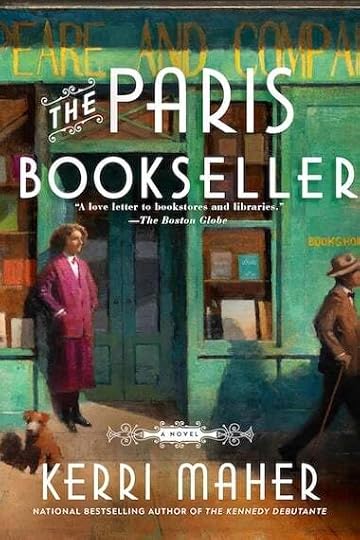
But the success and notoriety of publishing the most infamous and influential book of the century comes with steep costs. The future of her beloved store itself is threatened when Ulysses‘ success brings other publishers to woo Joyce away. Her most cherished relationships are put to the test as Paris is plunged deeper into the Depression and many expatriate friends return to America. As she faces painful personal and financial crises, Sylvia—a woman who has made it her mission to honor the life-changing impact of books—must decide what Shakespeare and Company truly means to her. The Paris Bookseller on Bookshop.org*
The Paris Bookseller on Amazon*
. . . . . . . . . .
The Little Paris Bookshop by Nina George
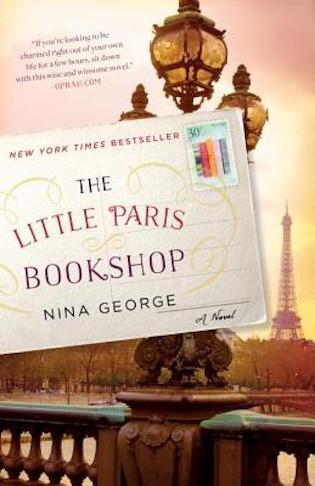
From the publisher: Monsieur Perdu calls himself a literary apothecary. From his floating bookstore in a barge on the Seine, he prescribes novels for the hardships of life. Using his intuitive feel for the exact book a reader needs, Perdu mends broken hearts and souls.
The only person he can’t seem to heal through literature is himself; he’s still haunted by heartbreak after his great love disappeared. She left him with only a letter, which he has never opened.
After Perdu is finally tempted to read the letter, he hauls anchor and departs on a mission to the south of France, hoping to make peace with his loss and discover the end of the story. Internationally bestselling and filled with warmth and adventure, The Little Paris Bookshop is a love letter to books, meant for anyone who believes in the power of stories to shape people’s lives.
The Little Paris Bookshop on Bookshop.org*
The Little Paris Bookshop on Amazon*
. . . . . . . . .
The Bookshop on the Corner by Jenny Colgan
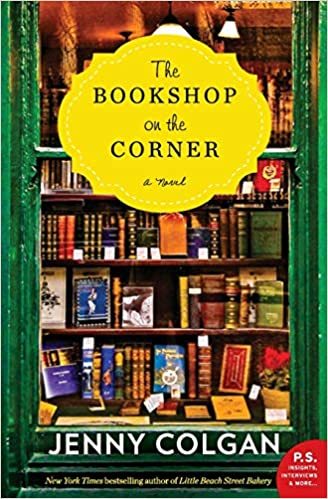
From the publisher: Nina Redmond is a librarian with a gift for finding the perfect book for her readers. But can she write her own happy-ever-after? In this valentine to readers, librarians, and book-lovers the world over, the New York Times-bestselling author of Little Beach Street Bakery returns with a funny, moving new novel for fans of Nina George’s The Little Paris Bookshop.
Determined to make a new life for herself, Nina moves to a sleepy village many miles away. There she buys a van and transforms it into a bookmobile — a mobile bookshop that she drives from neighborhood to neighborhood, changing one life after another with the power of storytelling.
Nina discovers there’s plenty of adventure, magic, and soul in a place that’s beginning to feel like home… a place where she just might be able to write her own happy ending. The next book in this series is The Bookshop on the Shore.
The Bookshop on the Corner on Bookshop.org*
The Bookshop on the Corner on Amazon*
. . . . . . . . . .
The Midnight Library by Matt Haig
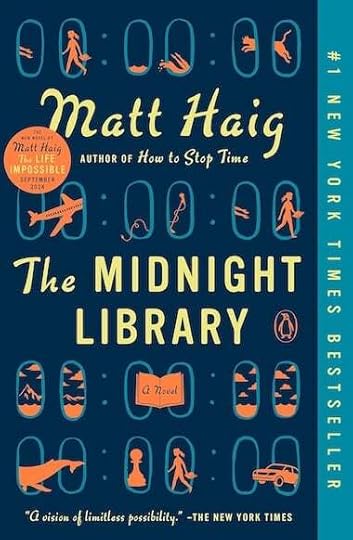
From the publisher: Somewhere out beyond the edge of the universe there is a library that contains an infinite number of books, each one the story of another reality. One tells the story of your life as it is, along with another book for the other life you could have lived if you had made a different choice at any point in your life.
While we all wonder how our lives might have been, what if you had the chance to go to the library and see for yourself? Would any of these other lives truly be better?
In The Midnight Library, Matt Haig’s enchanting blockbuster novel, Nora Seed finds herself faced with this decision. Faced with the possibility of changing her life for a new one, following a different career, undoing old breakups, realizing her dreams of becoming a glaciologist; she must search within herself as she travels through the Midnight Library to decide what is truly fulfilling in life, and what makes it worth living in the first place.
The Midnight Library on Bookshop.org*
The Midnight Library on Amazon*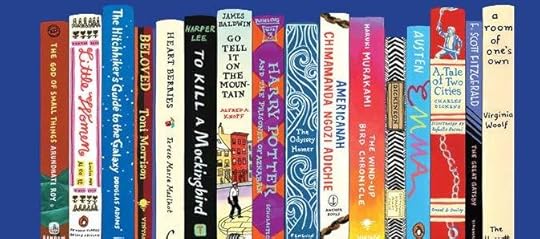
Nonfiction Books About Bookshops, Libraries, and Reading
(illustration above from Bibliophile by Jane Mount)
. . . . . . . . .
*These are Bookshop.org and Amazon affiliate links. If a product is purchased after linking through, Literary Ladies Guide receives a modest commission, which helps us to keep growing.
The post 10 Contemporary Novels About Bookstores and Libraries appeared first on Literary Ladies Guide.
Novels About Books and Libraries by Women Writers
For those of us who love — or make that obsessed with —books, novels about books, bookstores, and libraries are the icing on the cake. Reading about books and bookish people in fictional narratives, might seem odd, but for the devout bibliophile, it makes perfect sense.
Presented here is a selection of novels by women writers whose stories that take place in bookstores or libraries. What could be cozier reading on a chilly day accompanied by a warm drink, a blanket, and a four-legged friend or two?
. . . . . . . . . .
The Personal Librarian by Marie Benedict
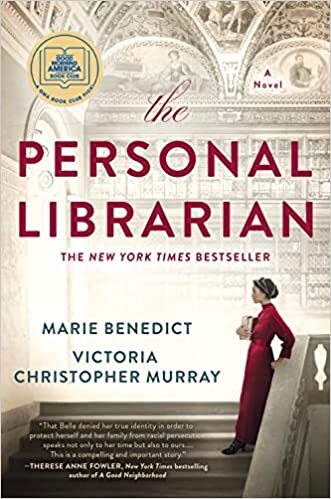
From the publisher: A remarkable novel about J. P. Morgan’s personal librarian, Belle da Costa Greene, the Black American woman who was forced to hide her true identity and pass as white in order to leave a lasting legacy that enriched our nation, from New York Times bestselling authors Marie Benedict and Victoria Christopher Murray.
Belle da Costa Greene is hired by J. P. Morgan to curate a collection of rare manuscripts, books, and artwork for his newly built Pierpont Morgan Library. Belle becomes a fixture in New York City society and one of the most powerful people in the art and book world, known for her impeccable taste and shrewd negotiating for critical works as she helps create a world-class collection.
The Personal Librarian tells the story of an extraordinary woman, famous for her intellect, style, and wit, and shares the lengths she must go to—for the protection of her family and her legacy—to preserve her carefully crafted white identity in the racist world in which she lives.
The Personal Librarian on Bookshop.org*
The Personal Librarian on Amazon*
. . . . . . . . . .
The Bookshop by Penelope Fitzgerald
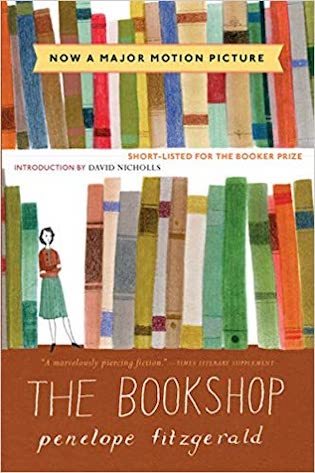
From the publisher: Set in 1959, Florence Green, a kindhearted widow with a small inheritance, risks everything to open a bookshop—the only bookshop—in the seaside town of Hardborough. By making a success of a business so impractical, she invites the hostility of the town’s less prosperous shopkeepers.
By daring to enlarge her neighbors’ lives, she crosses Mrs. Gamart, the local arts doyenne. Florence’s warehouse leaks, her cellar seeps, and the shop is apparently haunted. Only too late does she begin to suspect the truth: a town that lacks a bookshop isn’t always a town that wants one.
The Bookshop by Penelope Fitzgerald, published in 1978, was adapted to film in 2017, to mixed reviews by audiences and critics. Devotees of media about bookstores should nevertheless get some enjoyment from it.
The Bookshop on Bookshop.org*
The Bookshop on Amazon*
. . . . . . . . . .
The Last Bookshop in London: A Novel of World War IIby Madeline Martin
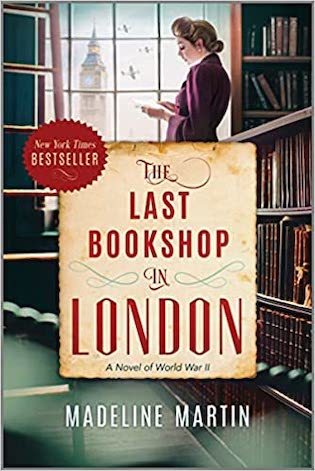
From the publisher: August 1939 — London prepares for war as enemy forces sweep across Europe. Grace Bennett has always dreamed of moving to the city, but the bunkers and drawn curtains that she finds on her arrival are not what she expected. And she certainly never imagined she’d wind up working at Primrose Hill, a dusty old bookshop nestled in the heart of London.
Through blackouts and air raids as the Blitz intensifies, Grace discovers the power of storytelling to unite her community in ways she never dreamed—a force that triumphs over even the darkest nights of the war. This 2021 publication has become a bestseller and a reader favorite.
The Last Bookshop in London on Bookshop.org*
The Last Bookshop in London on Amazon*
. . . . . . . . . . .
The Booklover’s Library by Madeline Martin

From the publisher: A heartwarming story about a mother and daughter in wartime England and the power of books that bring them together, by the bestselling author of The Last Bookshop in London. In Nottingham, England, widow Emma Taylor finds herself in desperate need of a job.
She and her beloved daughter Olivia have always managed just fine on their own, but with the legal restrictions prohibiting widows with children from most employment opportunities, she’s left with only one option: persuading the manageress at Boots’ Booklover’s Library to take a chance on her with a job.
When the threat of war in England becomes a reality, Olivia must be evacuated to the countryside. In the wake of being separated from her daughter, Emma seeks solace in the unlikely friendships she forms with her neighbors and coworkers, and a renewed sense of purpose through the recommendations she provides to the library’s quirky regulars. But the job doesn’t come without its difficulties … As the Blitz intensifies in Nottingham and Emma fights to reunite with her daughter, she must learn to depend on her community and the power of literature more than ever to find hope in the darkest of times.
The Booklover’s Library on Bookshop.org*
The Booklover’s Library on Amazon*
. . . . . . . . . .
The Little Paris Bookshop by Nina George

From the publisher: Monsieur Perdu calls himself a literary apothecary. From his floating bookstore in a barge on the Seine, he prescribes novels for the hardships of life. Using his intuitive feel for the exact book a reader needs, Perdu mends broken hearts and souls.
The only person he can’t seem to heal through literature is himself; he’s still haunted by heartbreak after his great love disappeared. She left him with only a letter, which he has never opened.
After Perdu is finally tempted to read the letter, he hauls anchor and departs on a mission to the south of France, hoping to make peace with his loss and discover the end of the story. Internationally bestselling and filled with warmth and adventure, The Little Paris Bookshop is a love letter to books, meant for anyone who believes in the power of stories to shape people’s lives.
The Little Paris Bookshop on Bookshop.org*
The Little Paris Bookshop on Amazon*
. . . . . . . . .
The Bookshop on the Corner by Jenny Colgan

From the publisher: Nina Redmond is a librarian with a gift for finding the perfect book for her readers. But can she write her own happy-ever-after? In this valentine to readers, librarians, and book-lovers the world over, the New York Times-bestselling author of Little Beach Street Bakery returns with a funny, moving new novel for fans of Nina George’s The Little Paris Bookshop.
Determined to make a new life for herself, Nina moves to a sleepy village many miles away. There she buys a van and transforms it into a bookmobile — a mobile bookshop that she drives from neighborhood to neighborhood, changing one life after another with the power of storytelling.
Nina discovers there’s plenty of adventure, magic, and soul in a place that’s beginning to feel like home… a place where she just might be able to write her own happy ending. The next book in this series is The Bookshop on the Shore.
The Bookshop on the Corner on Bookshop.org*
The Bookshop on the Corner on Amazon*
*These are Bookshop.org and Amazon affiliate links. If a product is purchased after linking through, Literary Ladies Guide receives a modest commission, which helps us to keep growing.
The post Novels About Books and Libraries by Women Writers appeared first on Literary Ladies Guide.
December 10, 2024
A Chosen Sparrow by Vera Caspary (1964)
“You survived. That’s important.”
“But who am I? An insignificant girl with no great talent. Why was I the one to be saved?”
He smiled a little. “Haven’t you heard that God heeds each sparrow’s fall?”
So many sparrows fell. Was God watching? Did He count them? Why was I chosen to live?”
(from A Chosen Sparrow by Vera Caspary, 1964)
This in-depth look at A Chosen Sparrow by Vera Caspary is excerpted from A Girl Named Vera Can Never Tell a Lie: The Fiction of Vera Caspary by Francis Booth ©2022. Reprinted by permission.
In a novel of compelling force the author traces the growth and development of Leni, a Jewish child who grew up in a Nazi prison. Knowing no other life, Leni strives to become like the “normal” people she encounters in her new world of freedom – post-war Vienna: the good citizens who wish to forget, the hypocrites who rationalize guilt, the penitents who try to atone the sins of the Nazis, the neurotics who hope to restore the days of perverse glory.
The very air of Vienna pulsates through the richly ornamented story – the customs, manners and old-world courtesy, and the charming lift of elegant shoulders, which shrug yesterday’s guilt from today’s pleasures.
Enchanted and corrupted by the brittle sentimentality and the splendors of this baroque world, Leni sees herself as the beautiful heroine of the classic fairytale. She seeks compensation in lush romanticism and shuns reality until the time comes when she is confronted by the specter of cruelty she knew in childhood, and the debt of the living (the chosen) to the six million dead. (—Front cover flap of the 1964 edition)
. . . . . . . . . .
Those who enjoyed Laura and anticipate another such novel of suspense will find Mrs. Caspary’s latest book far different but just as fascinating. The emphasis here is not entertainment only; the underlying purpose is to point up the disturbing fact that the evils of Nazism are still rampant in Europe today. The author’s imagination has evoked a strange heroine, a combination of the romantically old and the very modern new. (—Chicago Heights Star, April 12, 1964)
. . . . . . . . . .
As a novel about the survivor guilt of a Jewish girl growing up in Europe during and just after the time of the Nazis, A Chosen Sparrow by Vera Caspary was preceded among others by Elie Wiesel’s 1956 memoir Night, Olga Lengyel’s Five Chimneys (1959), both about their early lives in Auschwitz and Buchenwald, and by Meyer Levin’s Eva: A Novel of the Holocaust (1959), based on a true story, in which Eva passes for a while as a gentile, working as a maid in the home of an SS officer in Linz but is discovered and sent to Auschwitz.
Eva is set, like A Chosen Sparrow, in wartime and post-war Austria. Vienna-born Jewish writer Ilse Aichinger’s dreamlike Herod’s Children, first published in English in 1963, turns Levin’s and Caspary’s stories about the Jewish girl as outsider on their head: hers is a wartime story of a girl who feels like an outsider because she is not Jewish.
. . . . . . . . . .

Learn more about Vera Caspary
. . . . . . . . . .
Lonely Ellen meets a group of Jewish children and befriends them; when they are betrayed by an informer and taken to a camp, Ellen begs to go with them but they will not take her. That night she feels abandoned.
“For a moment Ellen forgot her pain. She forgot that she was free against her will; she forgot that they had let her go, out of the camp, back to the freedom of the damned. And she forgot the sad, jeering laughter of her friends – ‘We told you all along that you don’t belong to us.’”
Ellen decides to wear the yellow star that all Jews have been ordered to bear prominently. She pins one to her dress, at first only temporarily, then makes a decision. “She tore the star from her dress with trembling hands. One had to light the way when it was as dark as this, and how better to light it than with a star?
She would not have this forbidden her, not by her grandmother nor the secret police. Quickly, with big, uneven stitches she sewed the star to the left side of her coat.” Running down the street, “the star on her coat gave her wings,” but when she gets to the cake shop with the right money in her hand and the star on her coat they refuse to serve her.
Ellen looked down. Suddenly she knew the price of the cake. She had forgotten it. She had forgotten that people wearing the star weren’t allowed in the stores and still less in a bakery that served coffee and cakes at tables. The price of the cake was the star . . . The star was searing. It burned through the blue sailor coat and drove Ellen’s blood to her cheeks. So one had to choose. One had to choose between one’s star and all other things.
One reviewer called A Chosen Sparrow “at once a novel of psychological suspense, romance and contemporary Gothic horror,” which “lays bare the peaks and valleys of the human heart – and soul.” This makes it seem more like a psycho-thriller than a coming-of-age novel. In fact it is both.
The front cover of the Dell paperback calls it “The sensational new novel of romance and suspense by the author of Laura,” though in fact it contains neither romance nor suspense. So I have chosen to put it here in the Politics chapter because it is in fact a Holocaust novel and a very personal, sincere one at that, though unlike Aichinger, Lengyel and Wiesel, Caspary herself was not directly a victim of the Holocaust.
A Chosen Sparrow begins in Austria in 1940 while it is under Nazi occupation. But although their country was occupied, many ordinary, non-Jewish Austrians were not unhappy with the German presence; thousands had lined the streets to cheer the Nazi troops when their tanks rolled into Vienna in March 1938.
Antisemitism had already been rife for years, Jewish families had been attacked and persecuted, businesses had regularly been vandalized and closed down well before the arrival of the occupying German army.
Not all Jews knew about the antisemitism in Austria. In Meyer Levin’s novel, Eva, who is Polish, has a choice of where to settle after the war; she chooses Austria.
We were asked if we had any preference as to where we would be sent. Anya and I had agreed to ask for Austria. I had thought of Austria only because of the friendly telegraph operator from Linz. Perhaps other Austrians felt as he did. And when I was a child my father had gone, a few times, to Vienna on business, and he had spoken of the Austrians as a decent, cultured people, among the best of the goyim.
When she arrives in Vienna, Eva is impressed, “I had never seen this sight nor such a great city, and in spite of everything I was stirred with a sense of adventure.”
But Eva is soon brought down to earth when she is stripped naked in front of leering men at the reception center and subject to a gynecological examination which proves she is a virgin, a fact that amuses the doctor so much that he calls over several young men to witness the phenomenon. “Ah, this belongs in a museum! A maidenhead, at twenty-two!”
. . . . . . . . . .
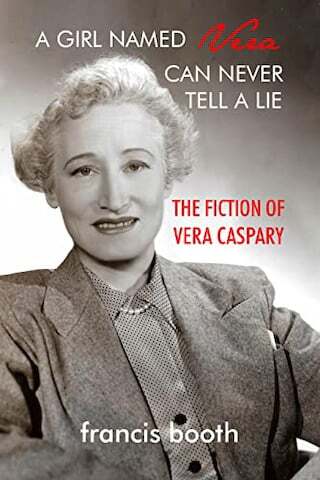
A Girl Named Vera Can Never Tell a Lie by Francis Booth
is available on and other sources of
downloadable media
. . . . . . . . . . .
Nearly twenty years after the end of the war, at the age of sixty-five, Caspary has neither forgiven nor forgotten these humiliations of the Jewish people and nor has her heroine/narrator, Leni. A Chosen Sparrow begins: “There is a theory held by good people that evil should be forgotten and only pleasant memories retained.”
Caspary clearly does not hold with this theory: three years later she would publish the cathartic, quasi-confessional The Rosecrest Cell, about her own wartime anti-Nazi activities, things which she had never been able to talk about before for fear of persecution and prosecution.
“Those who made me feel guilty for remembering evil were truly good, but they shamed me into believing it wicked to talk or even think about the degradation I had known in early childhood,” says Leni. Caspary disagrees with these people too and lets Leni think and talk freely. Similarly, Elie Wiesel says in Night:
“For the survivor who chooses to testify, it is clear: his duty is to bear witness for the dead and for the living. He has no right to deprive future generations of a past that belongs to our collective memory. To forget the dead would be akin to killing them a second time. . . For in the end, it is all about memory, its sources and its magnitude, and, of course, its consequences.”
The first sentence of Meyer Levin’s Eva, like the first sentence of A Chosen Sparrow, is also about preserving memory, about the importance of not forgetting the horrors, of making sure that the world will know and never forget.
“Perhaps you will be the one to live,” my mother said. “Then, Eva, if you live, you must write it all down, how you lived, and what happened to all of us, so it will be known. You must write down everything exactly as it was.”
A Chosen Sparrow is clearly going to be a hard read, harder than any prior Caspary novel, and with an entirely different kind of heroine. No previous Caspary heroine, even going back to Rosalia in The White Girl thirty-five years earlier, has been born into such dire circumstances; most have been born into comfortable, educated middle-class lives if not into actual wealth. Certainly none have had horrific childhoods.
And despite the, as it were offstage murders of young women in several previous novels, Caspary has never actually shown us any horrors directly and certainly never even touched upon the Holocaust. She did undertake a deep investigation into Jewish life in Thicker Than Water of 1932, but this was written before the Nazis came to power and none of her novels since then has addressed Jewish identity and history; indeed there are no explicitly Jewish female characters in any Caspary novel apart from Thicker Than Water and the only antisemitism in her work comes from the appalling Kathleen in The White Girl.
So A Chosen Sparrow represents an abrupt change of tone: Caspary’s previous novel had been the carefree, frothy Bachelor in Paradise three years earlier and in the novel before that, Evvie, both central characters come from quite wealthy backgrounds and have very enviable lives until one of them is murdered. And not long before Evvie, Cole Porter had written the music and lyrics for the musical comedy based on Caspary’s story Les Girls, 1957.[5]
But 1964 was the year Caspary’s beloved husband of fifteen years, Igee, whom she had met at the time of Laura, died; she must have been going through dark times.
As we saw in the previous chapter, Isadore Goldsmith had himself been a refugee from the Nazis in the 1930s, having got into trouble for bringing out a German version of All Quiet on the Western Front and importing Mickey Mouse and the decadent films of Jean Renoir.
With a lot of help, Caspary managed to get to London to see Igee during the war. The couple then returned to Europe several times after the war, including the time when, in 1951, two years after they were married and while “American troops were fighting the Reds in Korea,” they left America, at least partly to escape from the Hollywood witch-hunts.
They ended up in Austria, where Igee had both old friends and bad memories. “He had said that he would never go back,” but Caspary “begged to see her husband’s homeland and when he relented he showed me the country as proudly as if he had created the mountains, aquamarine, ultramarine, jade and heliotrope lakes, as if he had designed the onion domes of the village churches, planted the pretty modest flowers of the meadows.”
In an Austrian village called Seewalchen-am-Attersee they found a villa called Amthof, “a mansion built in the seventeenth century as a counting house of the diocese and home for the monks who handled the Church’s funds.” During the war the villa had been occupied by Nazi officers and later had been used to give asylum for people displaced from German-speaking Romania. “The silver, porcelain, paintings and Oriental rugs had been stolen, much of the fine furniture used for firewood.”
While in Austria, Goldsmith was “overcome by nostalgia that dissolved his prejudice” but after some more sightseeing the couple went back to “London and frustration. Two months later we were back at Amthof with scripts and typewriters. We had found our European home.”
Vera wrote happily during her time in Austria, working undisturbed “in my tower room at Amthof with the Attersee beneath my window,” including producing a version of Wedding in Paris. So A Chosen Sparrow is in its way a homage both to her husband’s homeland and to her own happy days there.
A Chosen Sparrow is the only one of Caspary’s novels to be narrated in the first person by the central character herself. Thelma and Evvie are both related in the first person by the best friend of the title character so that we see their experiences filtered through another consciousness.
Laura is mostly narrated by two very different men who have very different relationships to and impressions of Laura so we see her as if refracted through a prism, as we do the mysterious Elizabeth X whose “true” identity we literally do not know; Like Laura, Elizabeth briefly takes over the narration but she has amnesia and she does not know who she is. And in Stranger Than Truth we had a portfolio of overlapping narratives.
But in A Chosen Sparrow, there is no questioning of the nature and status of narrative, no distancing or prism effects: Leni simply tells us what she knows, what she remembers, in a straightforward, affectless, deadpan manner almost as emotionless as the “I am a camera” narratives of nouveaux romanciers like her Jewish contemporary Nathalie Sarraute and of Marguerite Duras, whose husband was imprisoned in Buchenwald, or of the young narrator of Jerzy Kosinski’s harrowing The Painted Bird (1965), who relates the unspeakable, remorseless horrors of wartime Europe with an unblinking eye.
The narrator of A Chosen Sparrow, known as Leni, was named Leonora because at the moment she was born her violinist father was in the orchestra pit at the Vienna Opera playing the overture to Beethoven’s Fidelio, which is about the self-sacrificing Leonore [sic] rescuing her husband from prison; Fidelio premiered in Vienna in 1805.
When Leni is eight years old, the Germans enter Vienna and the family move to Prague where her father continues as a musician. But then the Germans enter Prague too. Leni’s father disappears and her mother will not leave the apartment until he returns. They are captured and, because of a clerical error, sent to a prison rather than a concentration camp.
Her mother dies and Leni, now an orphan, is looked after by some of the many women in the prison who have lost their own children. The Americans arrive, liberate the prison and Leni is sent back to Vienna to live in a large villa with other orphan girls. All this in chapter one.
Leni is then fostered by a poor and dishonest family who are paid to take her in and are only interested in her food coupons; Leni sleeps on the floor in the corridor while they steal, cheat and connive their way through post-war Vienna. The antisemitism in Austria is just as bad as before the war.
“The Jews’ll get all the money again, by hook or crook. They always do. Take it away from them and they’ll get it back every time,” says her foster father. And later a self-righteous Viennese tells Leni that she believes “the stories of Jewish persecution were foreign propaganda. None of their friends had ever seen good Jews badly treated. It was only the swindlers, traitors, communists and international moneylenders who were exiled and punished.”
Of course, after the war, there are far fewer Jews in the city, for obvious reasons. In Meyer Levin’s Eva, after the war she and her Jewish friend in Krakow are physically safe but are similarly surrounded by “shiksehs” – non-Jewish girls. Unlike Leni, they decide to integrate rather than separate. “Now the shiksehs got ready for bed, as did we; one after another they dropped to their knees and prayed. We did the same; we had learned the Hail Mary and other prayers by heart, and now we mumbled them with the same murmur as the other girls.”
Leni’s foster mother has “many tricks for getting extra food,” but nothing that Leni can eat, just “pig’s heart or liver, treats she always denied me. It was mortal sin, I was told, for a Jewish child to eat the flesh of swine.” Leni has to eat what she can.
“I ate my ersatz spread and drank my watered wine while my foster mother, eating heartily, promised that such pious deprivation was for the good of my immortal soul. So far as I could understand, the possession of a soul brought nothing but suffering. As a Jew I lived in danger of eternal torment for a sin I had not committed. Because of this my parents had been harassed and chased from Vienna to Prague, my father had disappeared and my mother sent to prison. Now I was deprived of a good Sunday dinner and often during the week forced to eat only potatoes. Why? Naturally I asked questions.”
But Leni only asks the questions of herself. “I had no answers because I did not know the facts and was ashamed to ask questions.” Similarly, Elie Wiesel in Night says, “I pray to the God within me that He will give me the strength to ask Him the right questions.” Leni does not talk to God and does not understand when she is told that “the fact of my having been born a Jew was an act that I had willed before I was conceived.”
Leni’s unspoken questions are not answered, even when she is taken in by a far kinder, middle-class Christian couple with four daughters of their own; the musician father had known Leni’s father. Leni finally has a bed, though she has to share it with the youngest daughter. They become friends.
“Elfy worried about my immortal soul. She was my first and my best friend.” But even Elfy believes that Leni’s people “killed Christ. She had been told this by an older girl at the very door of the church. The accusation hurt. Who were my people? Jews. Was I to blame for something they did . . . if they had done it . . . two thousand years ago? Elfy said I was.”
Elfy’s father gets sick and dies; Leni has to earn money. She finds work as a singer in a cafe where she meets an older, wealthy Prussian, Gerhard Metzger, owner of “one of the oldest and finest castles in the Salzkammergut.” Metzger woos Leni solicitously and buys her presents without expecting anything physical of her. He mainly seems to want her to talk about her time in prison, which she does, though she has never done so before. It is cathartic for her.
“As I spoke the memories crowded back, forgotten faces came to mind. I heard the terror of voices raised in helpless grief, the cries of women marched off, suddenly and without preparation, to certain death.”
. . . . . . . . . .
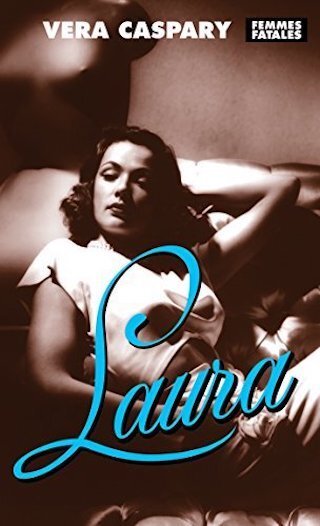
11 Novels by Vera Caspary
. . . . . . . . . .
Leni’s memories pour out as italicized reveries, streams of consciousness bubbling to the surface from her repressed subconscious.
Leni tells Gerhard about the sexual exploitation by the women guards in this all-female prison. “‘I want you tonight,’ they whisper to the youngest and prettiest of the prisoners.” Sometimes at night Leni watches but she does not understand what the women are doing. One guard, “big-stupid, foul-mouthed,” is rebuffed by Leni’s mother.
“Gretl’s revenge is endless. She cuts the rations of a sick woman trying to stay alive on ten decas of bread a day and one ladleful of potato-skin soup; she spits when Mutti passes or strikes her with the truncheon. To make my poor mother suffer more Gretl beats me or, as brutally, picks me up and presses terrible moist kisses on my mouth.”
But it is not the urbane Gerhard’s wealth or even his kindness that attracts Leni, it is his need for her. “No one had ever expressed a need for Leonora Neumann. I had found a place in the world, a man who needed my sympathy to soothe hidden wounds.” Metzger whips Leni off to Paris and marries her; she wants to get married in Vienna with Elfy as bridesmaid but Gerhard will not hear of it.
Leni leaves without the chance even to say goodbye to her foster family. In Paris, Gerhard proudly shows off his new wife to his sister, visiting from America, salaciously repeating the horrors she has seen. “And he told her in great detail about my life in the prison, repeating with relish the most brutal facts. ‘Beaten!’ He sipped cognac and licked his lips. ‘Starved! Exposed to every sort of vice! Blood and rape! Both by men and women!’
Gerhard is proud of his new possession, his creation even. “One would never think to look at her that she had experienced such horrors. And she will become more elegant when I have taught her a bit more.” It is clear that Gerhard sees himself as Galatea to Leni’s Pygmalion, as in a later novel Chauncey Greenleaf will seem to Elizabeth X.
Coming back to Austria, the couple move in to the nine hundred-and-forty-year-old family castle. Caspary describes it in almost exactly the same words she used to describe the real life Villa Amthof, which was in a village called Seewalchen-am-Attersee; the much larger and more Gothic fictional Schloss Liebhofen is in similarly-named Altbach-am-Sternsee. Like Villa Amthof the castle had been used by the Luftwaffe during the war and now “much of the fine furniture had been burned as fuel, brocades and tapestries were torn, damask stained.
Valuable carpets had been carried off, as well as candelabra, porcelains and silver.” This is almost exactly what Caspary said about Villa Amthof. Leni even sleeps in a tower room, similar to the one Caspary used for writing while she was in Austria. Leni at first wonders whether she has come to Bluebeard’s Castle but it turns out that locked-up former wives are not Gerhard’s secret.
“Bluebeard had shown a peculiar smile when he unlocked the cupboards where the bodies of previous wives were hidden. The companions of my husband’s lonely hours were thus introduced.”
We may be wondering whether Leni has in fact come to somewhere like the château in Roissy from The Story of O where the woman with no name is to be made available for sadistic men. But O was not published in English until 1965, and Gerhard does not in any case have any such intentions towards Leni, even though she may have been prepared to participate if he had.
“Some men beat their wives. My husband showed greater refinement; he also suffered. I was trained in submission, had learned endurance by long practice. It never occurred to me to pack my bag and, like the heroine of a modern novel or film, walk out. I was not such a stupid young thing that I did not find perversity in love that needed such provocation, but I also found certain satisfactions.”
Leni is no Hedda Gabler shooting herself in the temple to avoid a scandal, no Nora from A Doll’s House: “That’s right. Now it is all over. I have put the keys here,” says Nora as she walks out of her own play.
But Leni has not yet discovered all of her husband’s secrets; there are more revelations to come. She meets Victor, an American journalist writing about “Nazi officials in government posts, of recent acts against Jews, anti-Semitic propaganda and the desecration of synagogues.” Leni almost has an affair with Victor but she finds out that he is merely using her to find the truth about her husband’s wartime activities.
Gerhard has told her that during the war he was in the army but he was never a Nazi, was not a senior officer and only worked in an office; but he would say that, wouldn’t he – that’s what they all said. Victor implies that her husband was attached to one of the smaller concentration camps; Leni refuses to believe him and leaves but she is still attracted to him.
The next revelation comes swiftly. Leni has already discovered in the wardrobe a dress that she does not recognize and questions the maid, who is very evasive. Then, coming home early one evening with her friend the cynical, serial divorcee Hansi, Leni hears music upstairs; a waltz is playing.
“I threw open the door without knocking, was immediately aware of the pungent, oriental perfume. Quietly in the doorway I watched the waltz, noted every detail; the black décolleté, the chain with the diamonds set in platinum lozenges, the matching platinum and diamond ear drops which Gerhard sometimes took from the safe for me to wear at important parties, the short crop of dyed chestnut hair, several bracelets from the safe. Satin slippers had pointed toes and thin high heels but the ankles above them were thick and not at all shapely, the ankles of a man.”
Both men are shocked at the intrusion. “Frozen in the waltz while the music trilled on, they could only stare.” Gerhard tries to recover the situation with an icy “I didn’t expect you so early,” as Hansi tries to get Leni out of the room to come home with her. With perfect timing, the old Hungarian family retainer comes into the room.
“Imre limped in with the coffee pot and two cups, brandy and a silver dish with sugared fruit. He knew his master’s tastes, had served him long before a wife had been brought to the house.”
This situation almost prefigures Liliana Cavani’s 1975 film The Night Porter, in which an SS officer who had both gay and masochistic tendencies had taken photographs in a concentration camp during the war and had had an ambiguous sadomasochistic relationship with a female teenage prisoner; they meet later in Vienna and re-establish their bizarre relationship.
The cross dressing man sneers at Leni: “You know why he married a Jew girl, don’t you? Out of spite. He was angry with me.” Leni remembers one night in a restaurant when Gerhard had taken a phone call and come back angry with “the devil’s bitch” but had given her no further explanation; straight afterwards he had proposed to Leni.
“During a marriage proposal a man can hardly confess that he has kept a male mistress. I had been impressed because the rejected bitch had called from Rome.” But Leni realizes now that she is a “bride of spite,” a poor substitute. She could perhaps fight against the attentions of another woman, but not of a man.
Still, Gerhard pleads with Leni to stay, saying he still needs her and will confess everything. He apparently does, telling Leni that during the war he was in love with a senior officer whom he calls Konni, who was stationed near to the Wardenthal concentration camp that Victor had told Leni about.
Rather than being appalled, Leni accepts Gerhard’s story; she takes it as “a confession of perversity, which it was, also truthful so far is that part of the past was concerned.” For Leni this decadent world seems almost romantic, literally looking down on but removed from the reality of the horrors of prison camp; it almost becomes a form of escapism for her. Gerhard’s “boyish blushes made me see it as a love story, twisted and tragic. I suffered as though I were reading a sad novel.”
But Leni still does not really understand why Gerhard married her: surely not simply out of spite? Then, in his private room one night, where the books of photographs are, he talks to Leni about the portrait of his mother on the wall, looking down on them.
“I thought about you. I thought of you together, I often have, Leonora, you and my mother.” So this is why Gerhard, a gay man afraid of disappointing his mother, wanted to marry Leni, “to prove that he could live like other men, take a wife,” so that he could say to the dead woman’s portrait, “you see, mama, I am doing what you always wanted me to. Better the Jew girl than the devil’s bitch.”
Despite his confession, though, Gerhard still seems lost. “‘Help me,’ Gerhardt said and, humbly, several times, ‘I need you.’” What happened to Konni, Leni wants to know. Konni is now dead, Gerhard says; all that is over. I am yours now, if you will have me. “The story should have ended here, like all the tales about the lucky goose girl who comes to live in the castle.”
But, reader, the story is not over; Holocaust stories do not have happy endings. Gerhard has lied about Konni. Victor tells Leni that the man is in fact a war criminal who had been detained by the Americans but escaped.
Later, wandering lost around a part of the castle she has never been in before, Leni comes across Gerhard with two other men, one she knows, the other she assumes is Konni. They are playing cards, living an underground life of prewar decadence.
“Without victims to torment and excite them, without beatings and hangings and odd medical experiments to heighten the temperature of their love, they found other diversions, exquisite dinners, masked balls, mystic rituals, secret night games.”
Leni immediately gets in her car intending to report what she saw. She drives right past the local police station, worried that they might be to under the influence of the people in the castle, and carries on all the way to Vienna where she finds an apparently sympathetic police officer. But Leni then discovers that nothing has been done about her report; the castle servants have of course remained loyal to their master and denied everything.
Leni is even threatened with prosecution for adultery with Victor if she pursues it; the implication is that there is enough sympathy for ex-Nazis in the upper echelons of the Austrian government to keep him and other people like him hidden. Still, Leni does not intend to give up, she sees now why she was chosen, as perhaps Caspary saw why she was chosen to live long enough to write this book and keep the flame of collective Jewish memory burning brightly.
Surely it had been inefficiency or error on the part of some petty official that have saved me from the sealed trains, the concentration camp and death, but I can think of it only as a miracle. For what? Delights and disillusion, starvation and opulence, injustice and good fortune, perverse and garish and contradictory as the tormented saints and merry devils of a baroque church column.
God is life, child. I do not know God, I cannot make a prayer, but I can promise with all the truth that is in me that I will never again forget one brutal moment; and that I will not allow comfort nor complacence nor even compassion to keep me from shouting out against those sentimental, self-pitying murderers.
They try to show penitence in many ways, offer charm, kiss hands, practice skills, lure us with luxuries, urge us in the name of decency and good manners to bury the infamous past. Not me! I am a chosen sparrow. And even one small bird can keep the guilty from peaceful slumber through the haunted nights.
. . . . . . . . .
Contributed by Francis Booth, the author of several books on twentieth-century culture: Amongst Those Left: The British Experimental Novel 1940-1960 (published by Dalkey Archive); Everybody I Can Think of Ever: Meetings That Made the Avant-Garde; Girls in Bloom: Coming of Age in the Mid-Twentieth Century Woman’s Novel; Text Acts: Twentieth-Century Literary Eroticism; Comrades in Art: Revolutionary Art in America 1926-1938; High Collars & Monocles: 1920s Novels by British Female Couples; and A Girl Named Vera Can Never Tell a Lie: The Fiction of Vera Caspary.
Francis has also published several novels: The Code 17 series, set in the Swinging London of the 1960s and featuring aristocratic spy Lady Laura Summers; Young adult fantasy series The Watchers; and Young Adult fantasy novel Mirror Mirror. Francis lives on the South Coast of England.
The post A Chosen Sparrow by Vera Caspary (1964) appeared first on Literary Ladies Guide.
December 8, 2024
The Secret Gardens of Frances Hodgson Burnett by Angelica Shirley Carpenter
It’s never too soon to introduce young readers to classic authors. Angelica Shirley Carpenter’s The Secret Gardens of Frances Hodgson Burnett, a picture book biography (Bushel & Peck Books, 2024) does so in an immensely engaging way.
Vivid illustrations by Helena Pérez García that burst with colorful expression on every page. Angelica presents the story of Frances Hodgson’s insecure childhood on both sides of the Atlantic.
Marrying Dr. Swan Burnett, having two sons, experiencing triumph as well as hardships and tragedies and writing through it all is part of the fascinating story of this author’s life. Frances’s story is one of perseverance, finding moments of joy in complicated circumstances, and the solace of creative pursuit.
Because her few enduring books are so very famous —The Secret Garden (1911), A Little Princess (1905), and Little Lord Fauntleroy (1886), it’s not well known how incredibly prolific Frances was. She wrote far more books for adults than for children — dozens of novels, and at least thirteen stage plays. But it’s this trio of books for children of all ages that endure, with their timeless messages of kindness, generosity, hope, and healing.
. . . . . . . . . . .
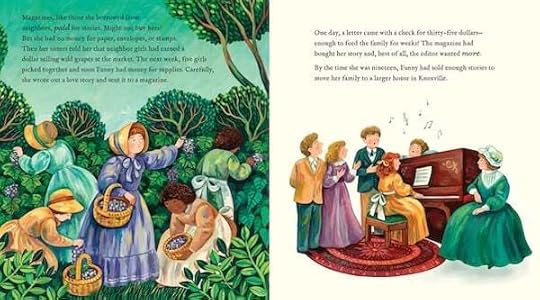
Learn more about
The Secret Gardens of Frances Hodgson Burnett
. . . . . . . . . . .
Other things special things about this book include: a brief, fascinating biography of Frances Hodgson Burnett plus a timeline of her life; a selected list of some of her many books for children and and adults; and a bibliography of titles for those who’d like to delve more deeply into her life.
As icing on the cake there’s a letter to young readers from Keri Wilt, the great-great granddaughter of Frances. It’s followed by a set of “keys” to prompt children (and even adults) to gain a deeper understanding of The Secret Garden, a story that works on so many levels.
Kudos to Angelica Shirley Carpenter for her charming text and to Helena Pérez García for her stunning art. Together they have created not only a lovely picture book, but a keepsake. The cover even has a die-cut keyhole, inviting the reader to enter the adventure within.
. . . . . . . . . . .

The Secret Gardens of Frances Hodgson Burnett is available
on Bookshop.org, Amazon, and wherever books are sold
. . . . . . . . . . .
From the publisher, Bushel & Peck Books: “Frances Hodgson Burnett—best known for writing The Secret Garden, Little Lord Fauntleroy, and The Little Princess—had a difficult life, losing her father when she was very young, moving to a new country in the face of economic turmoil, and suffering the loss of a son and a marriage later in life. But Frances? She could imagine anything, and she used her gifts to transform grief and hardship into beautiful works of literature that lifted the spirits of millions around the world. This is her story.”
. . . . . . . . . . .
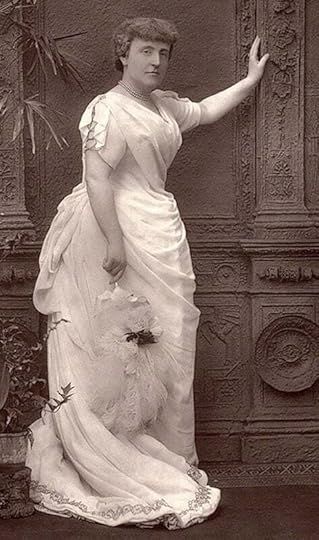
Learn more about Frances Hodgson Burnett
. . . . . . . . . . .
Praise for The Secret Gardens of Frances Hodgson Burnett by Angelica Shirley Carpenter
“Beauties blossom aplenty in this welcome volume. The Secret Gardens of Frances Hodgson Burnett can’t fail to captivate the minds and hearts of young readers and even, perhaps, plant some seeds there.” —Gregory Maguire, author of Wicked, co-founder of Children’s Literature New England
“The gray drudgery of industrial Manchester, England, contrasts with the vivid floral hues of Burnett’s gardens in stunning illustrations that perfectly pair with the book’s timeless message: ‘hope is never far for those who can imagine.’”—Foreword Reviews, Starred Review
. . . . . . . . . . .
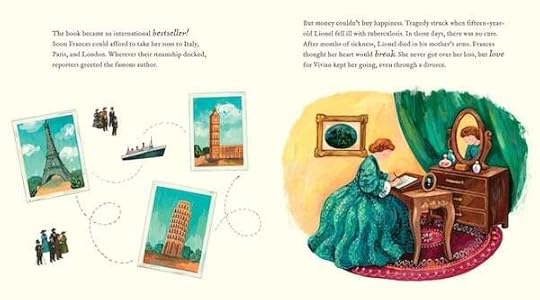
. . . . . . . . . . . .
“Burnett’s own rags-to-riches story is compelling, too. The distinctive illustrations bring her gardens to life on the page through the graceful forms and rich, varied colors of trees, bushes, vines, and flowers….the theme of gardens as a source of beauty and healing is evident throughout this engaging biographical narrative.” —Booklist
“I am delighted to think that this lovely picture book will encourage children (and indeed their parents) to read The Secret Garden, one of the best children’s books ever written.” —Ann Thwaite, prize-winning British biographer, author of Beyond the Secret Garden: The Life of Frances Hodgson Burnett
. . . . . . . . . . . .
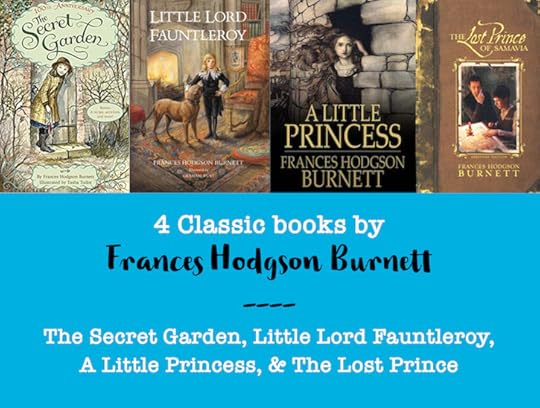
See also:
4 Classic Books by Frances Hodgson Burnett
. . . . . . . . . . . .
This post contains Bookshop.org and Amazon affiliate links. If a product is purchased after linking through, Literary Ladies Guide receives a modest commission, which helps us to keep growing.
The post The Secret Gardens of Frances Hodgson Burnett by Angelica Shirley Carpenter appeared first on Literary Ladies Guide.
December 7, 2024
How It Feels to Be Colored Me by Zora Neale Hurston (full text)
“How it Feels to Be Colored Me” is an essay by Zora Neale Hurston originally published in the 1928 edition of The World Tomorrow. She explores her unique experience with race in her customary wry, forthright manner.
Zora makes clear that she speaks only for herself, as the tone of this essay doesn’t necessarily reflect the more proudly propagandist Black writing that characterized the 1920s New Negro movement (also known as the Harlem Renaissance.
Yet she clearly critiques the rampant segregation and bias that were woven into the fabric of American life, North and South. Following is the full text of “How it Feels to Be Colored Me,” now in the public domain. The only alteration to the text has been to break up long paragraphs, for easier readability on devices.
“How it Feels to Be Colored Me” by Zora Neale Hurston (1928)I am colored but I offer nothing in the way of extenuating circumstances except the fact that I am the only Negro in the United States whose grandfather on the mother’s side was not an Indian chief.
I remember the very day that I became colored. Up to my thirteenth year I lived in the little Negro town of Eatonville, Florida. It is exclusively a colored town. The only white people I knew passed through the town going to or coming from Orlando. The native whites rode dusty horses, the Northern tourists chugged down the sandy village road in automobiles.
The town knew the Southerners and never stopped cane chewing when they passed. But the Northerners were something else again. They were peered at cautiously from behind curtains by the timid. The more venturesome would come out on the porch to watch them go past and got just as much pleasure out of the tourists as the tourists got out of the village.
The front porch might seem a daring place for the rest of the town, but it was a gallery seat for me. My favorite place was atop the gate-post. Proscenium box for a born first-nighter. Not only did I enjoy the show, but I didn’t mind the actors knowing that I liked it.
. . . . . . . . . . .
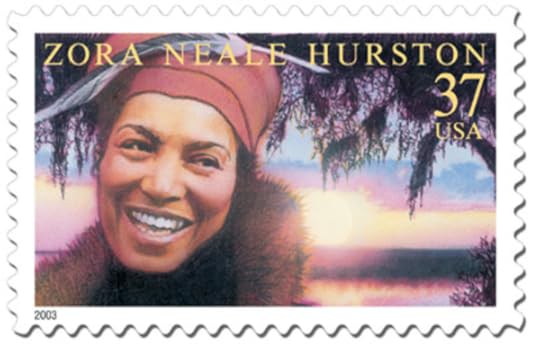
RELATED POSTS
Zora Neale Hurston Quotes and Life Lessons
“Crazy for This Democracy” by ZNH
I Love Myself When I Am Laughing …
What White Publishers Won’t Print
Zora and Me: How I Found Myself by Discovering Zora Neale Hurston
. . . . . . . . . .
I usually spoke to them in passing. I’d wave at them and when they returned my salute, I would say something like this: “Howdy-do-well-I-thank-you-where-you-go-in’?” Usually automobile or the horse paused at this, and after a queer exchange of compliments, I would probably “go a piece of the way” with them, as we say in farthest Florida.
If one of my family happened to come to the front in time to see me, of course negotiations would be rudely broken off. But even so, it is clear that I was the first “welcome-to-our-state” Floridian, and I hope the Miami Chamber of Commerce will please take notice.
During this period, white people differed from colored to me only in that they rode through town and never lived there. They liked to hear me “speak pieces” and sing and wanted to see me dance the parse-me-la, and gave me generously of their small silver for doing these things, which seemed strange to me for I wanted to do them so much that I needed bribing to stop, only they didn’t know it. The colored people gave no dimes. They deplored any joyful tendencies in me, but I was their Zora nevertheless. I belonged to them, to the nearby hotels, to the county—everybody’s Zora.
But changes came in the family when I was thirteen, and I was sent to school in Jacksonville. I left Eatonville, the town of the oleanders, as Zora. When I disembarked from the river-boat at Jacksonville, she was no more. It seemed that I had suffered a sea change. I was not Zora of Orange County any more, I was now a little colored girl. I found it out in certain ways. In my heart as well as in the mirror, I became a fast brown—warranted not to rub nor run.
But I am not tragically colored. There is no great sorrow dammed up in my soul, nor lurking behind my eyes. I do not mind at all. I do not belong to the sobbing school of Negrohood who hold that nature somehow has given them a lowdown dirty deal and whose feelings are all but about it. Even in the helter-skelter skirmish that is my life, I have seen that the world is to the strong regardless of a little pigmentation more or less. No, I do not weep at the world—I am too busy sharpening my oyster knife.
Someone is always at my elbow reminding me that I am the granddaughter of slaves. It fails to register depression with me. Slavery is sixty years in the past. The operation was successful and the patient is doing well, thank you.
The terrible struggle that made me an American out of a potential slave said “On the line!” The Reconstruction said “Get set!” and the generation before said “Go!” I am off to a flying start and I must not halt in the stretch to look behind and weep. Slavery is the price I paid for civilization, and the choice was not with me. It is a bully adventure and worth all that I have paid through my ancestors for it.
No one on earth ever had a greater chance for glory. The world to be won and nothing to be lost. It is thrilling to think—to know that for any act of mine, I shall get twice as much praise or twice as much blame. It is quite exciting to hold the center of the national stage, with the spectators not knowing whether to laugh or to weep.
The position of my white neighbor is much more difficult. No brown specter pulls up a chair beside me when I sit down to eat. No dark ghost thrusts its leg against mine in bed. The game of keeping what one has is never so exciting as the game of getting.
I do not always feel colored. Even now I often achieve the unconscious Zora of Eatonville before the Hegira. I feel most colored when I am thrown against a sharp white background. For instance at Barnard. “Beside the waters of the Hudson” I feel my race. Among the thousand white persons, I am a dark rock surged upon, and overswept, but through it all, I remain myself. When covered by the waters, I am; and the ebb but reveals me again.
Sometimes it is the other way around. A white person is set down in our midst, but the contrast is just as sharp for me. For instance, when I sit in the drafty basement that is The New World Cabaret with a white person, my color comes. We enter chatting about any little nothing that we have in common and are seated by the jazz waiters.
In the abrupt way that jazz orchestras have, this one plunges into a number. It loses no time in circumlocutions, but gets right down to business. It constricts the thorax and splits the heart with its tempo and narcotic harmonies. This orchestra grows rambunctious, rears on its hind legs and attacks the tonal veil with primitive fury, rending it, clawing it until it breaks through to the jungle beyond. I follow those heathen—follow them exultingly.
I dance wildly inside myself; I yell within, I whoop; I shake my assegai above my head, I hurl it true to the mark yeeeeooww! I am in the jungle and living in the jungle way. My face is painted red and yellow and my body is painted blue. My pulse is throbbing like a war drum. I want to slaughter something—give pain, give death to what, I do not know.
But the piece ends. The men of the orchestra wipe their lips and rest their fingers. I creep back slowly to the veneer we call civilization with the last tone and find the white friend sitting motionless in his seat, smoking calmly. “Good music they have here,” he remarks, drumming the table with his fingertips.
Music. The great blobs of purple and red emotion have not touched him. He has only heard what I felt. He is far away and I see him but dimly across the ocean and the continent that have fallen between us. He is so pale with his whiteness then and I am so colored.
At certain times I have no race, I am me. When I set my hat at a certain angle and saunter down Seventh Avenue, Harlem City, feeling as snooty as the lions in front of the Forty-Second Street Library, for instance. So far as my feelings are concerned, Peggy Hopkins Joyce on the Boule Mich with her gorgeous raiment, stately carriage, knees knocking together in a most aristocratic manner, has nothing on me. The cosmic Zora emerges. I belong to no race nor time. I am the eternal feminine with its string of beads.
I have no separate feeling about being an American citizen and colored. I am merely a fragment of the Great Soul that surges within the boundaries. My country, right or wrong.
Sometimes, I feel discriminated against, but it does not make me angry. It merely astonishes me. How can any deny themselves the pleasure of my company? It’s beyond me.
But in the main, I feel like a brown bag of miscellany propped against a wall. Against a wall in company with other bags, white, red and yellow. Pour out the contents, and there is discovered a jumble of small things priceless and worthless. A first-water diamond, an empty spool, bits of broken glass, lengths of string, a key to a door long since crumbled away, a rusty knife-blade, old shoes saved for a road that never was and never will be, a nail bent under the weight of things too heavy for any nail, a dried flower or two still a little fragrant.
In your hand is the brown bag. On the ground before you is the jumble it held—so much like the jumble in the bags could they be emptied that all might be dumped in a single heap and the bags refilled without altering the content of any greatly. A bit of colored glass more or less would not matter. Perhaps that is how the Great Stuffer of Bags filled them in the first place—who knows?
. . . . . . . . . . .
You might also enjoy:
Quotes from Their Eyes Were Watching God
The post How It Feels to Be Colored Me by Zora Neale Hurston (full text) appeared first on Literary Ladies Guide.

